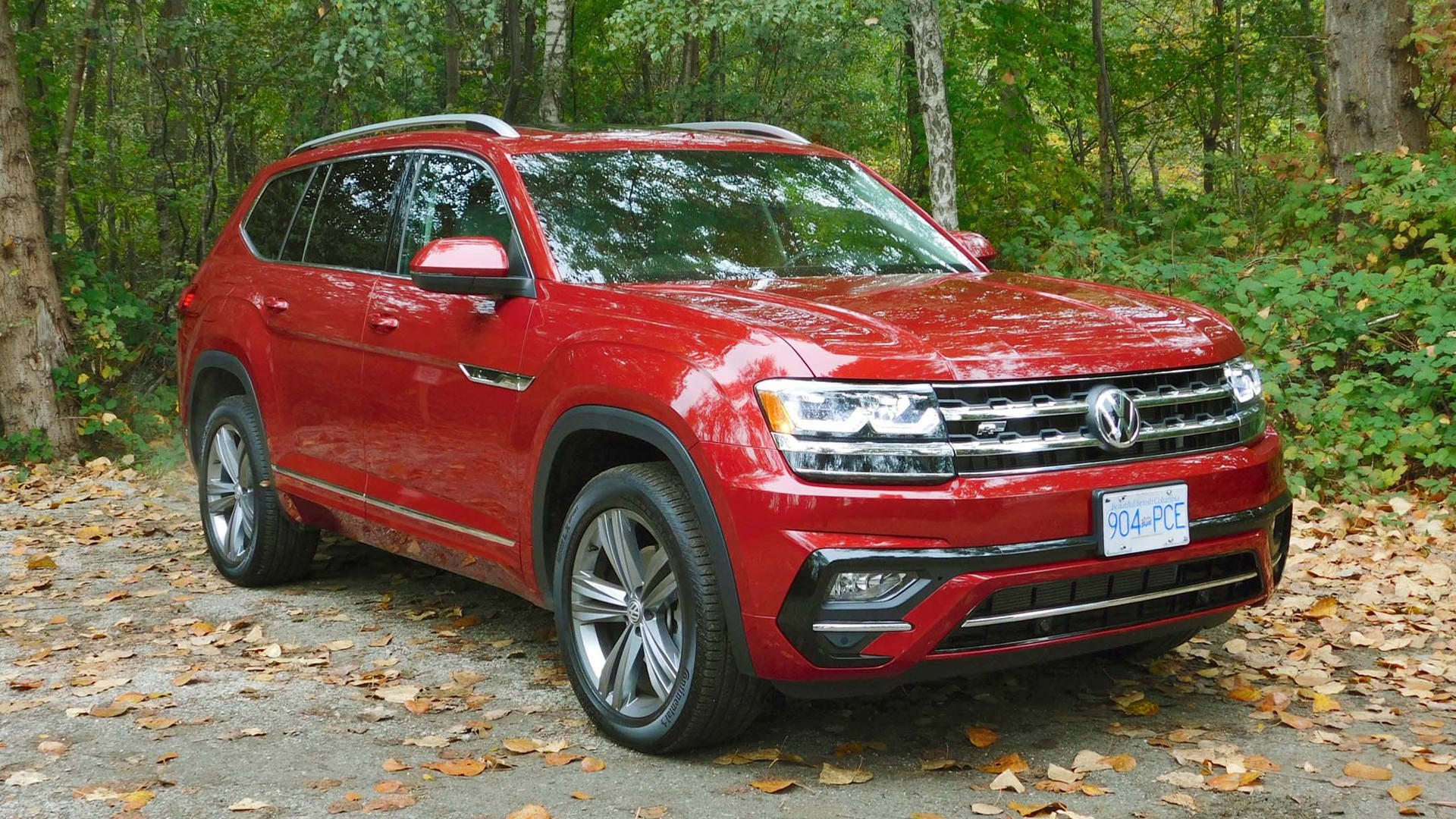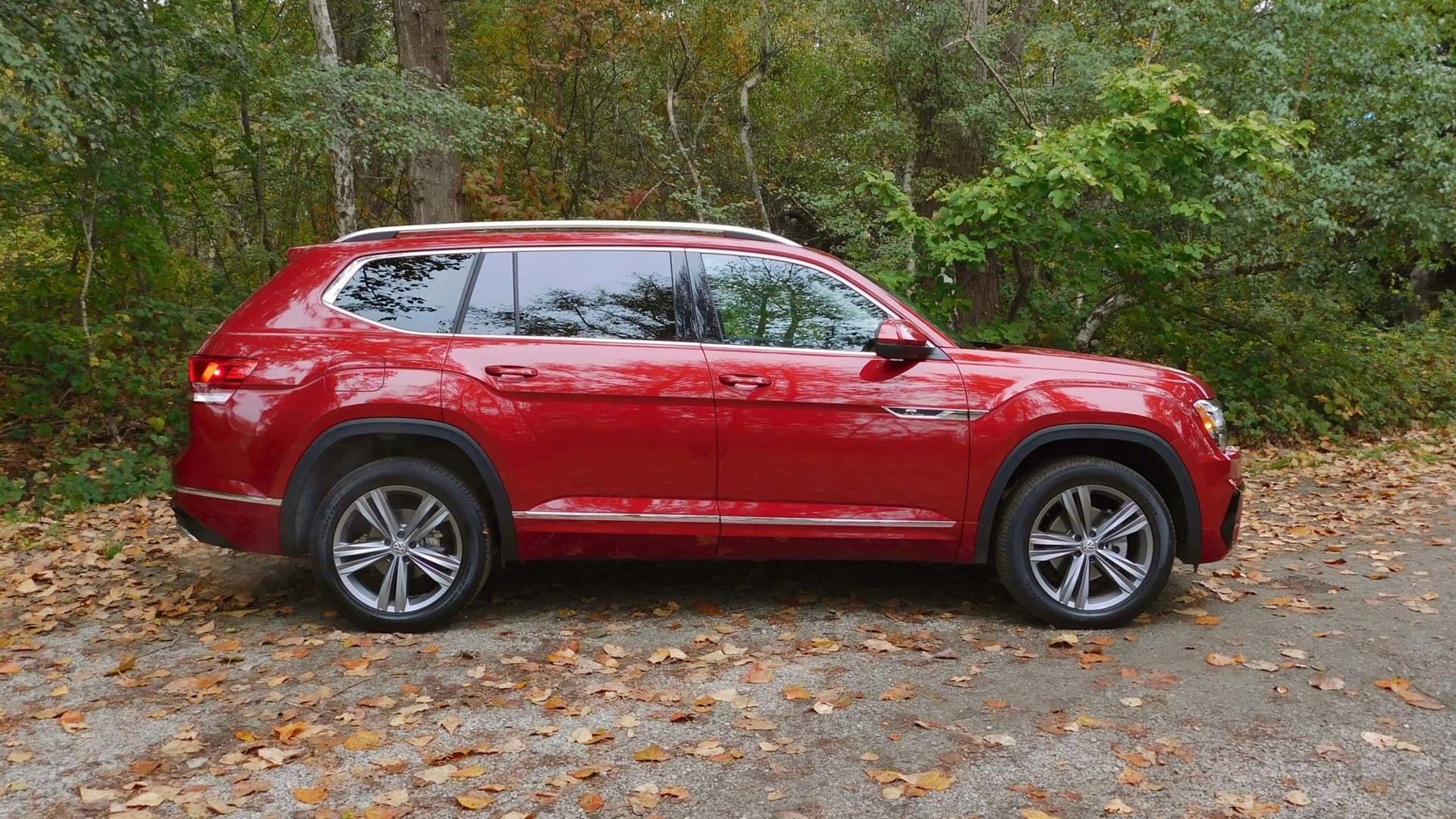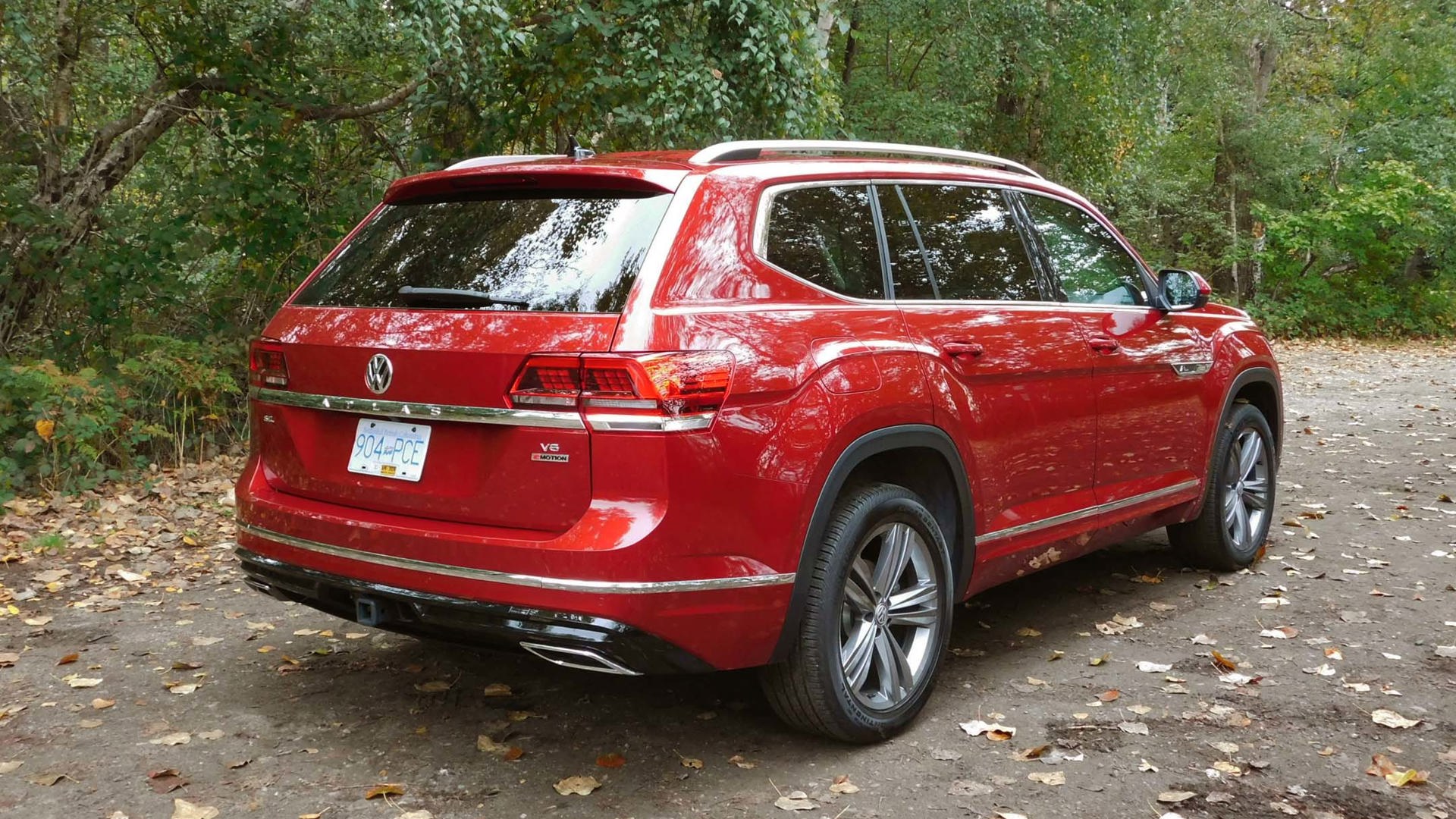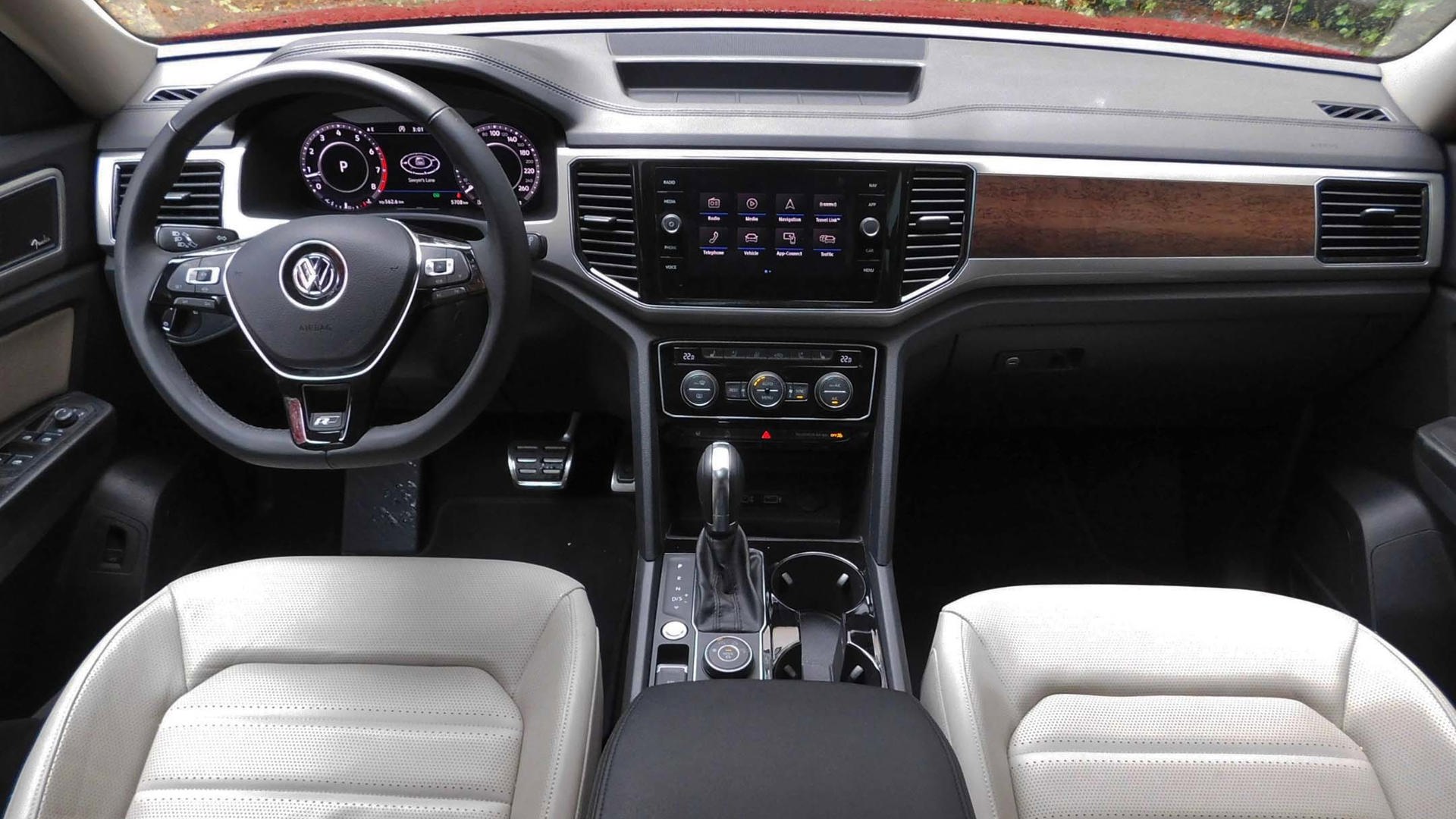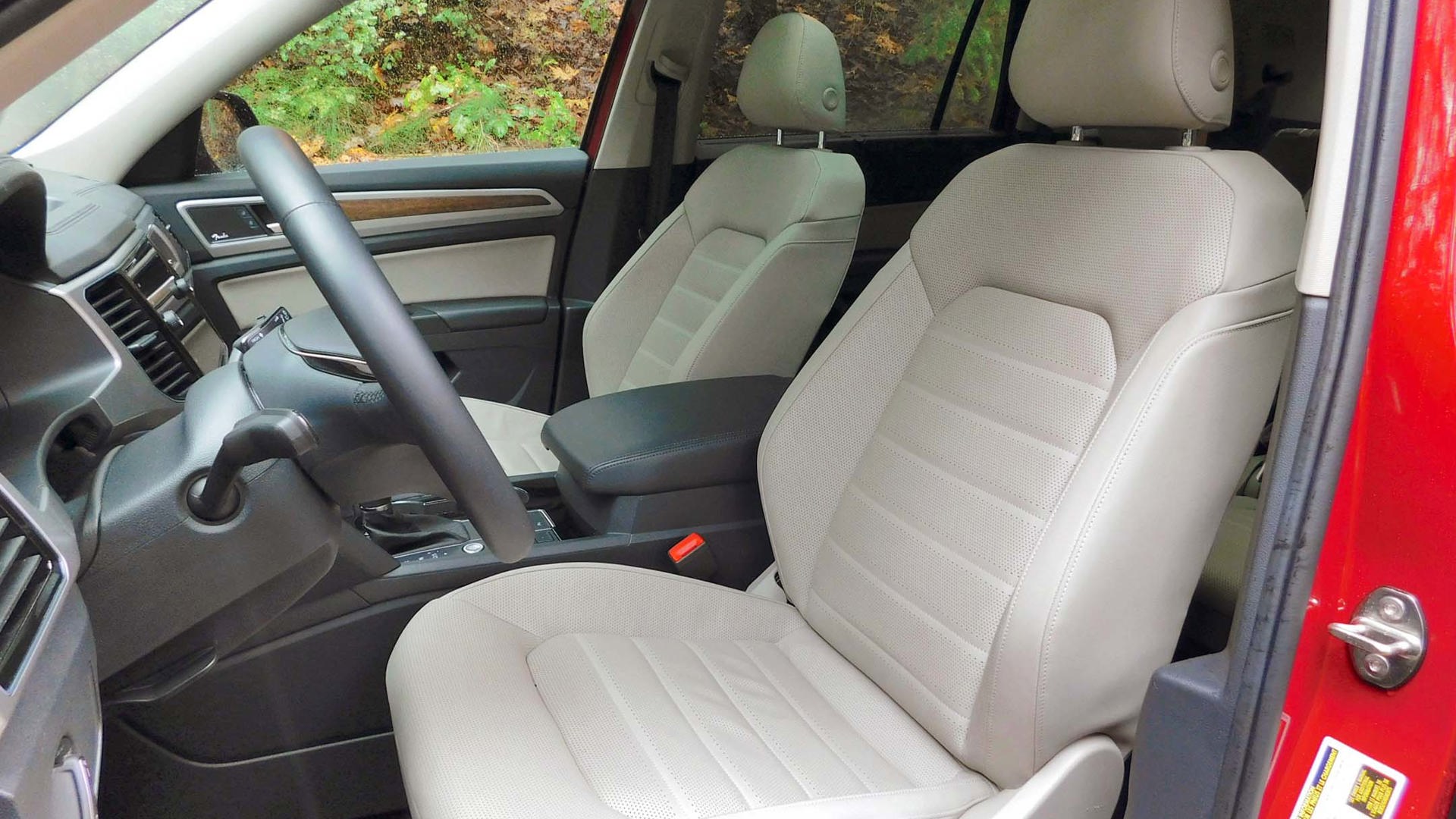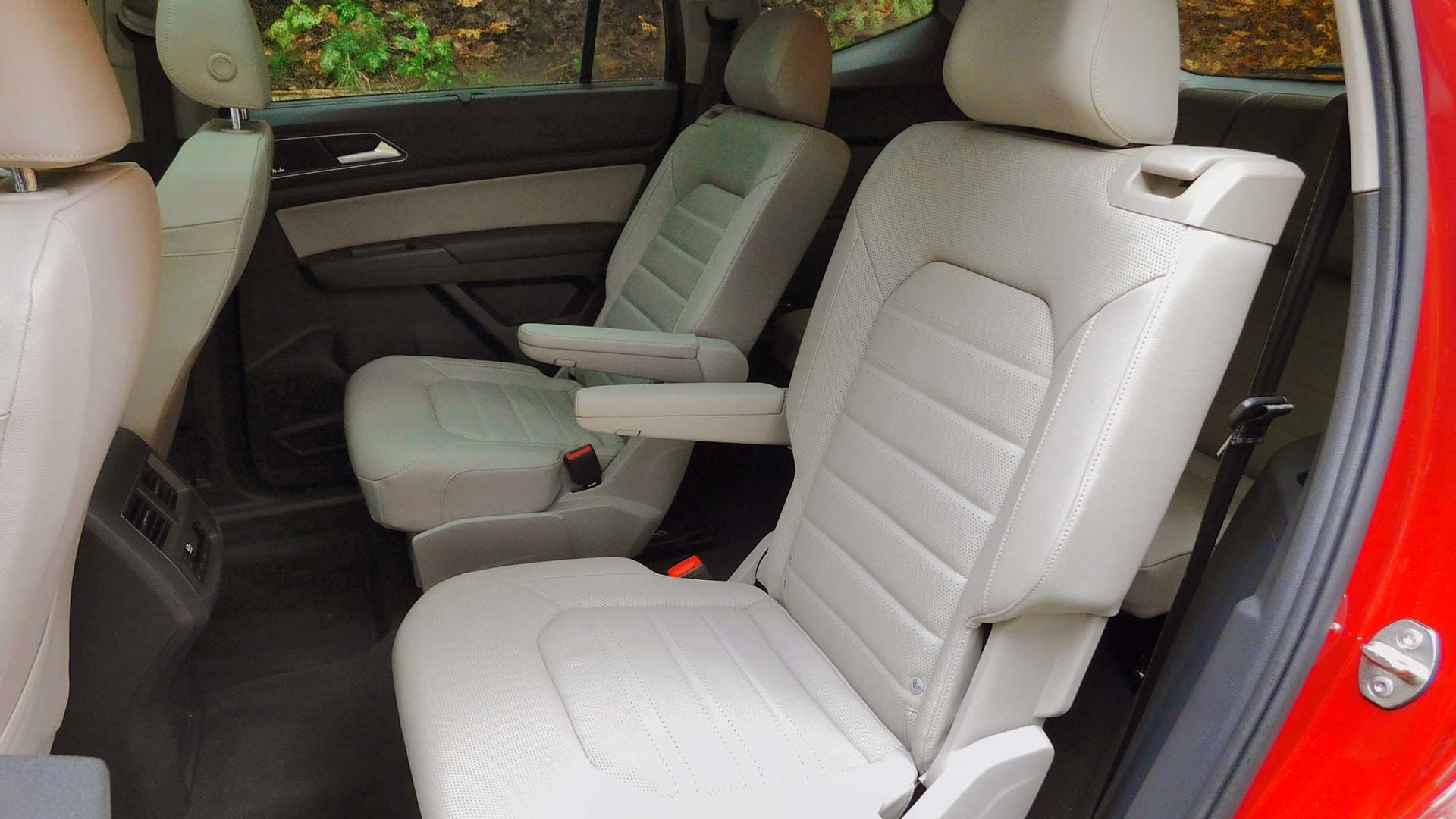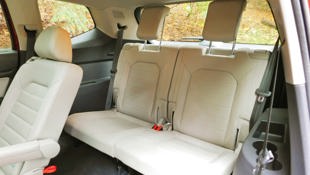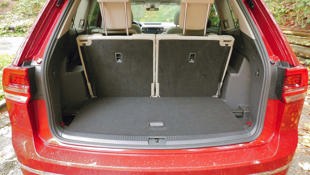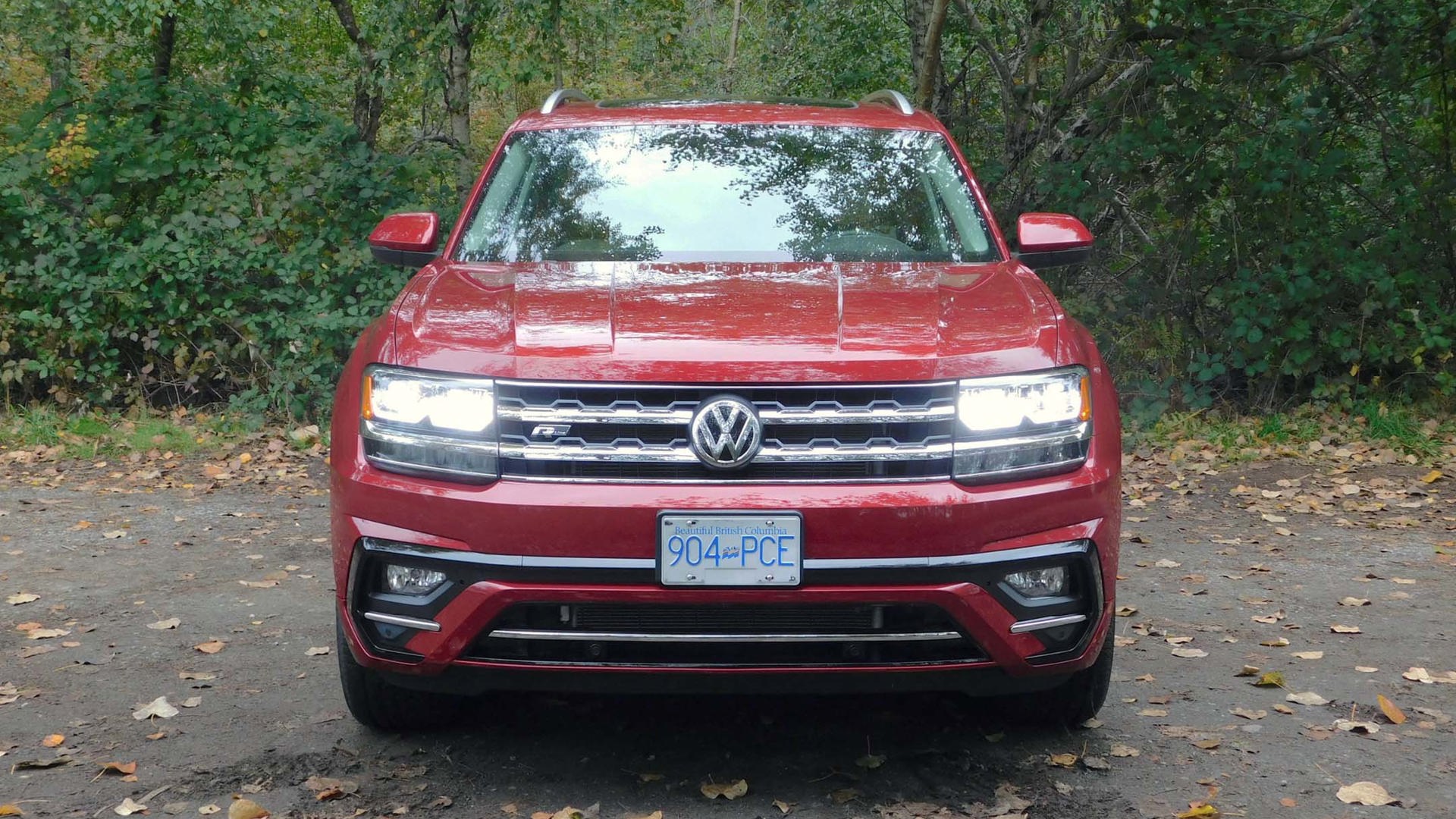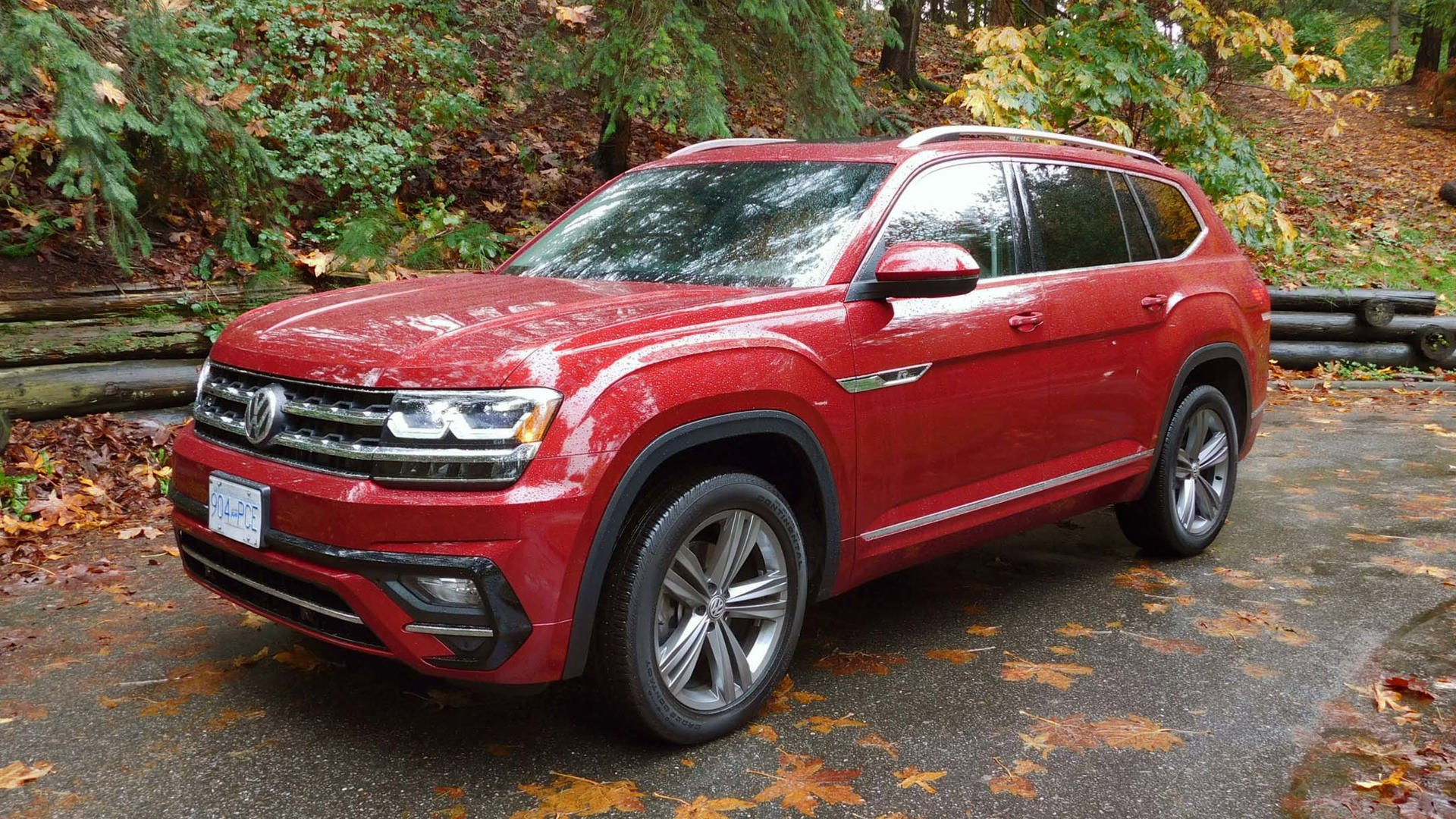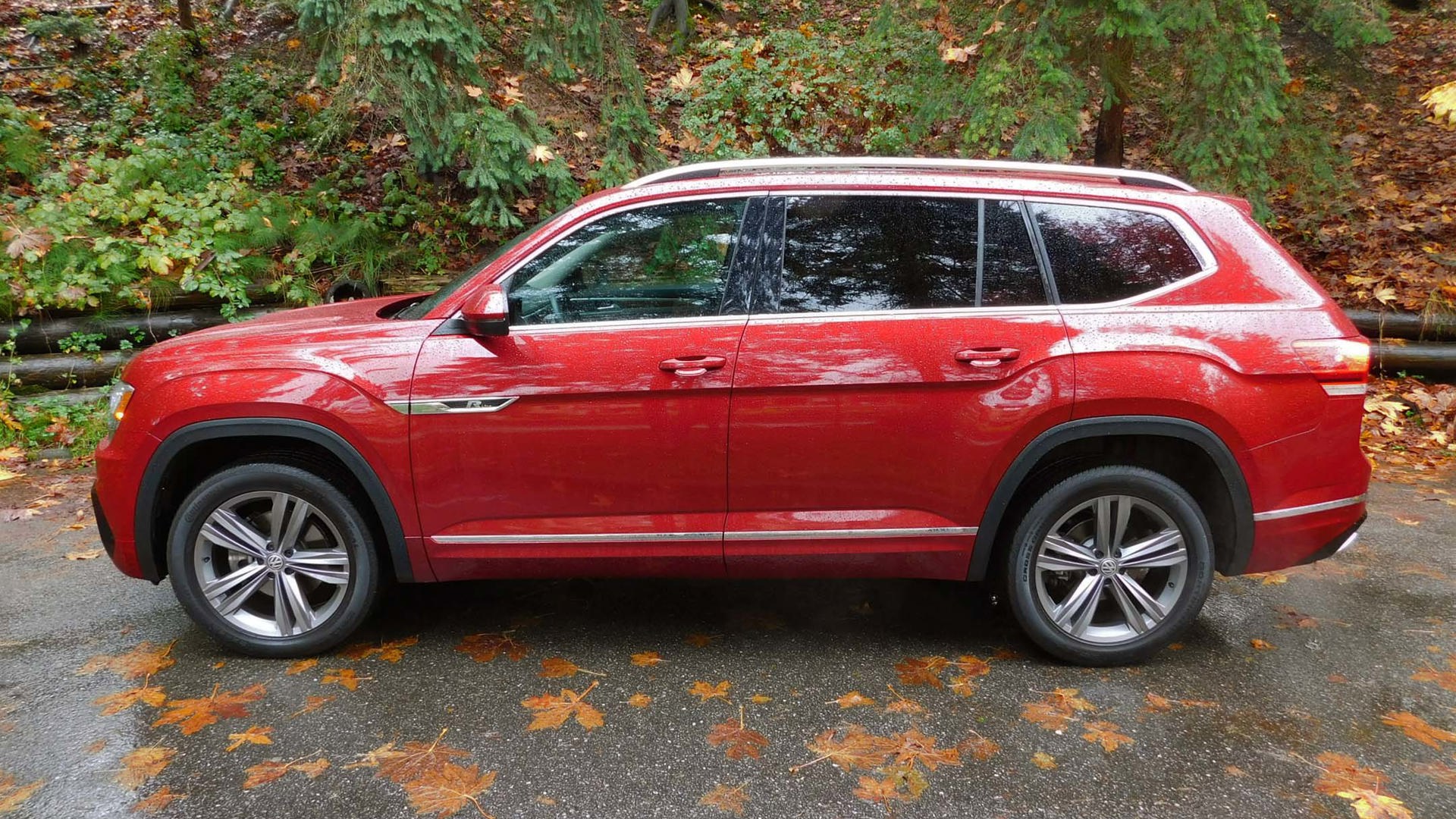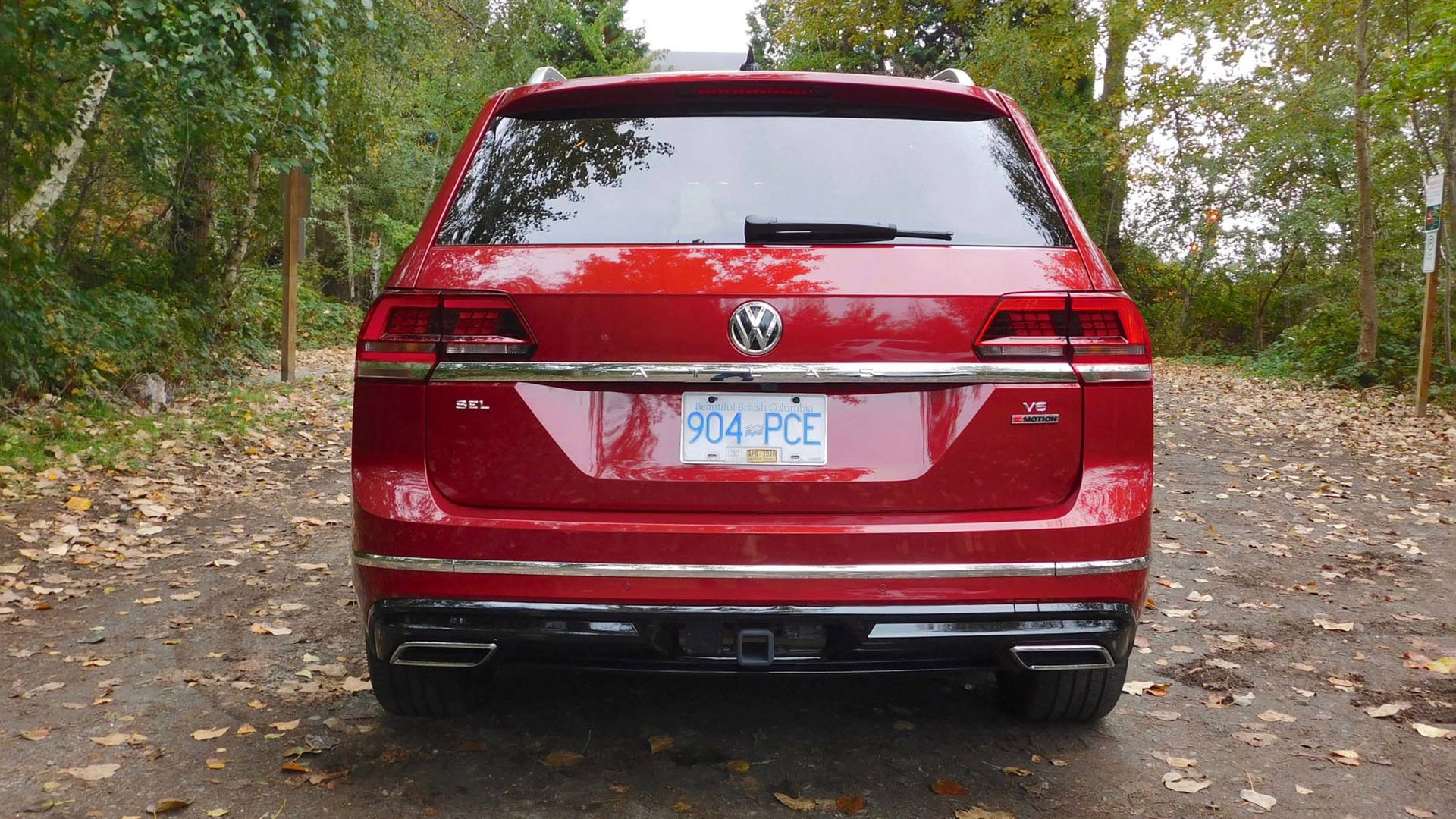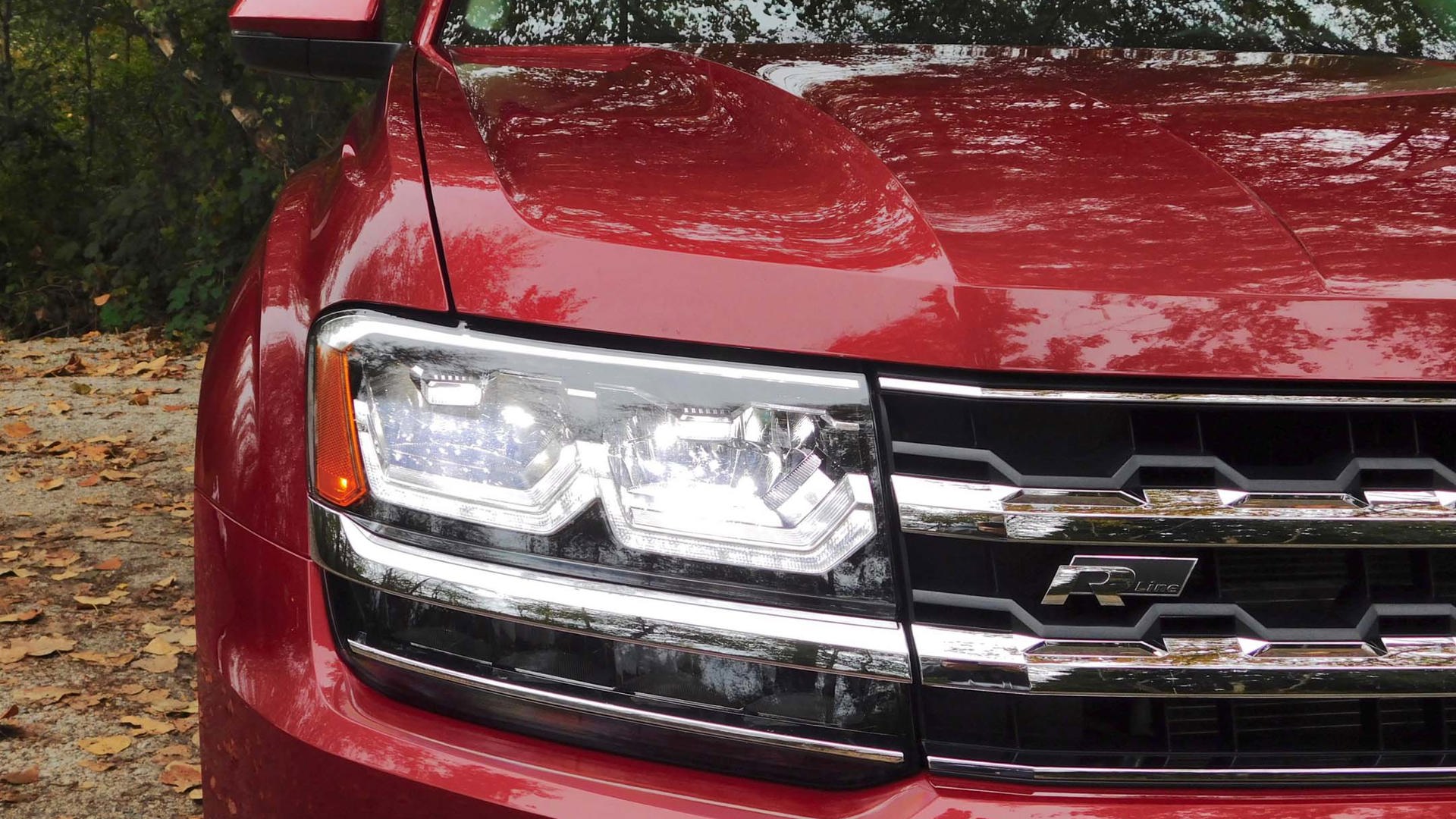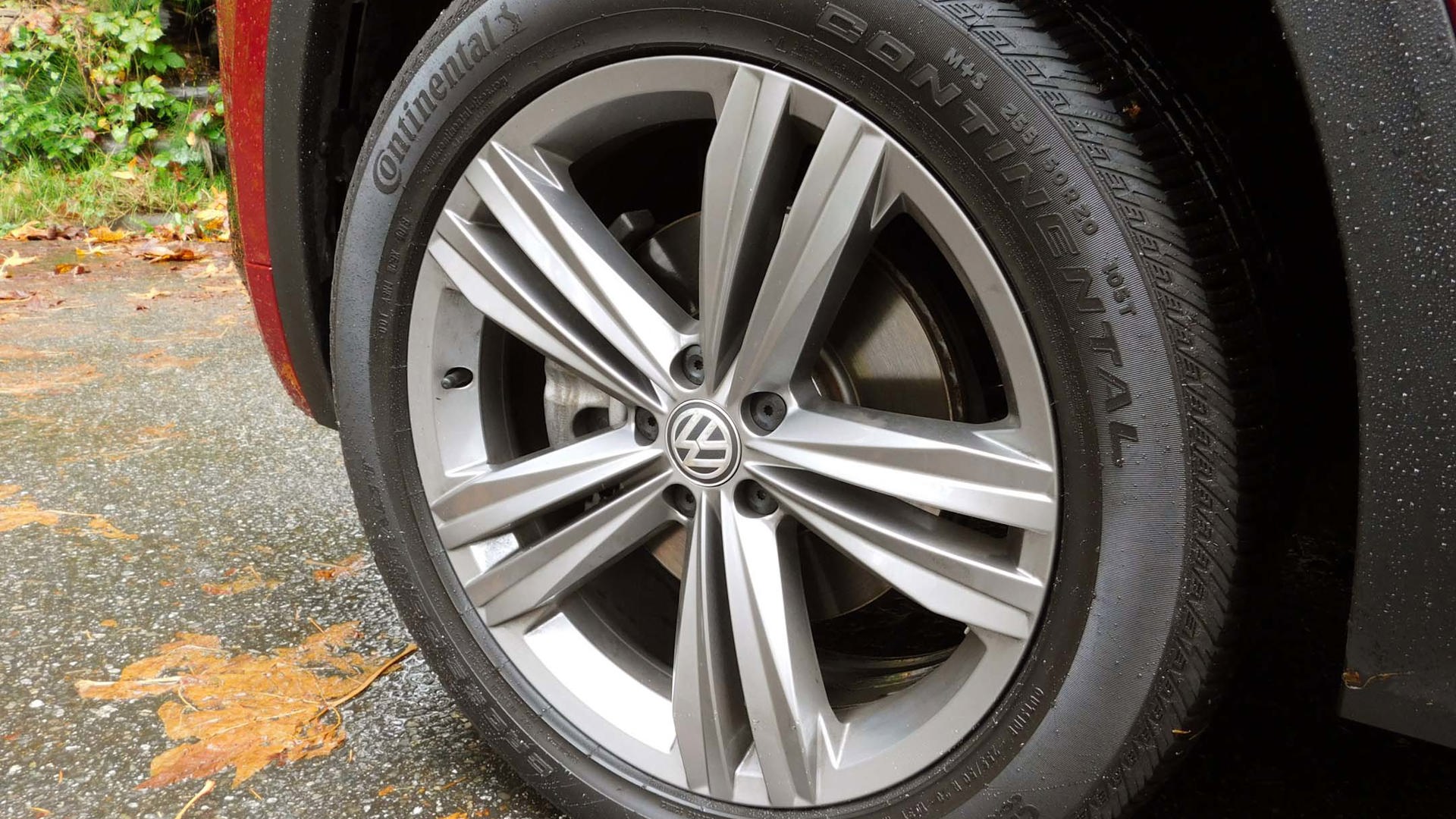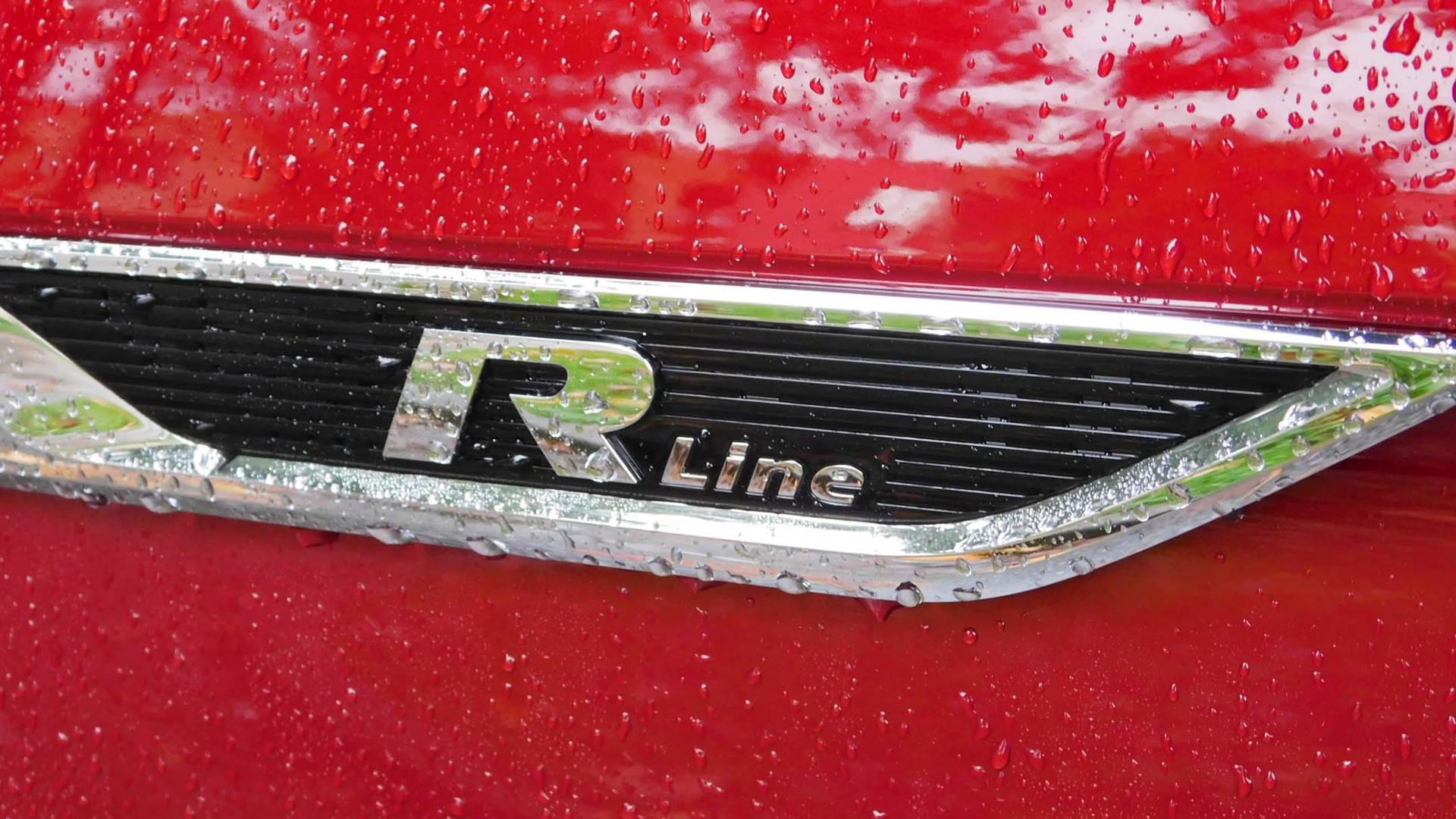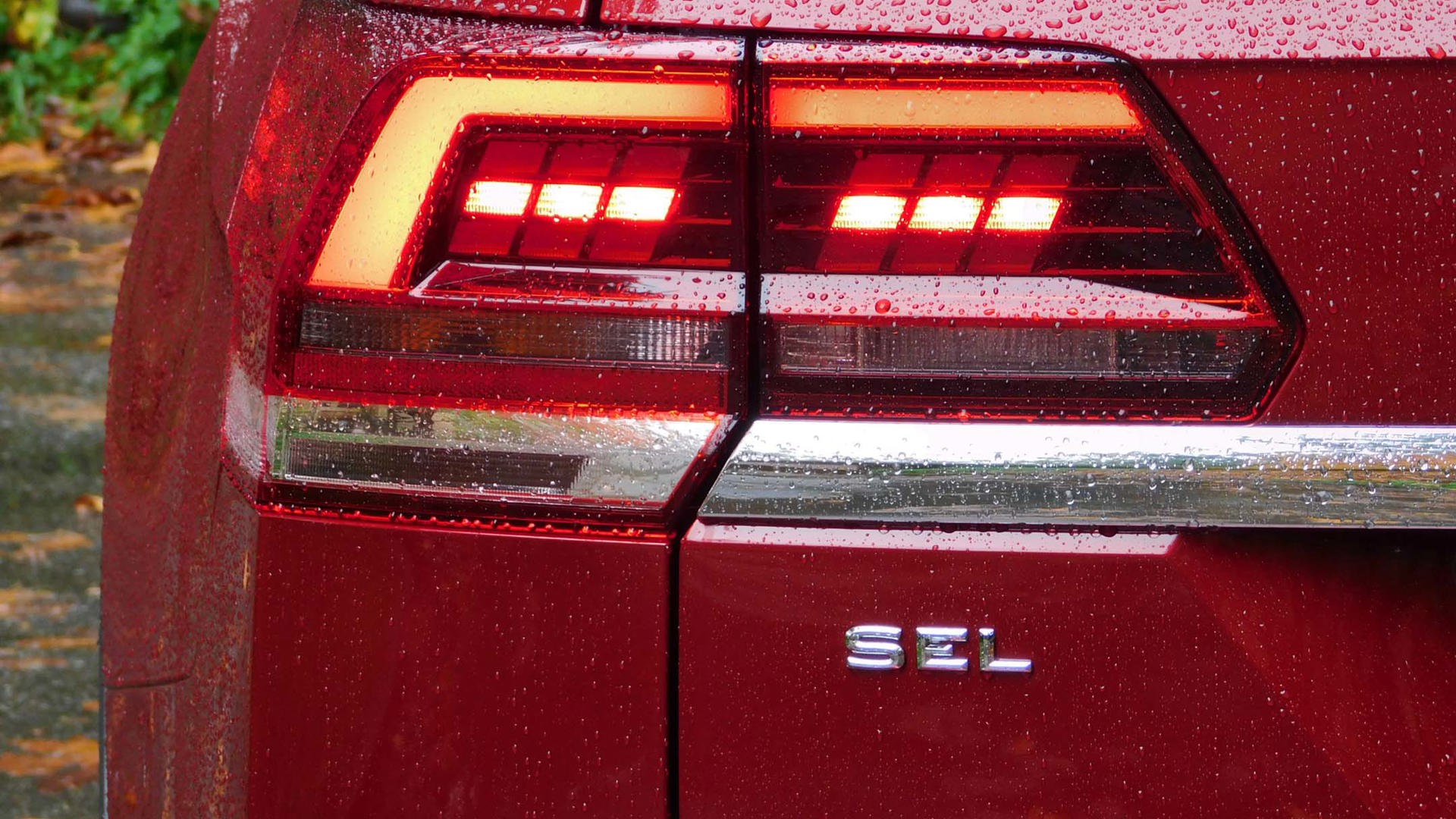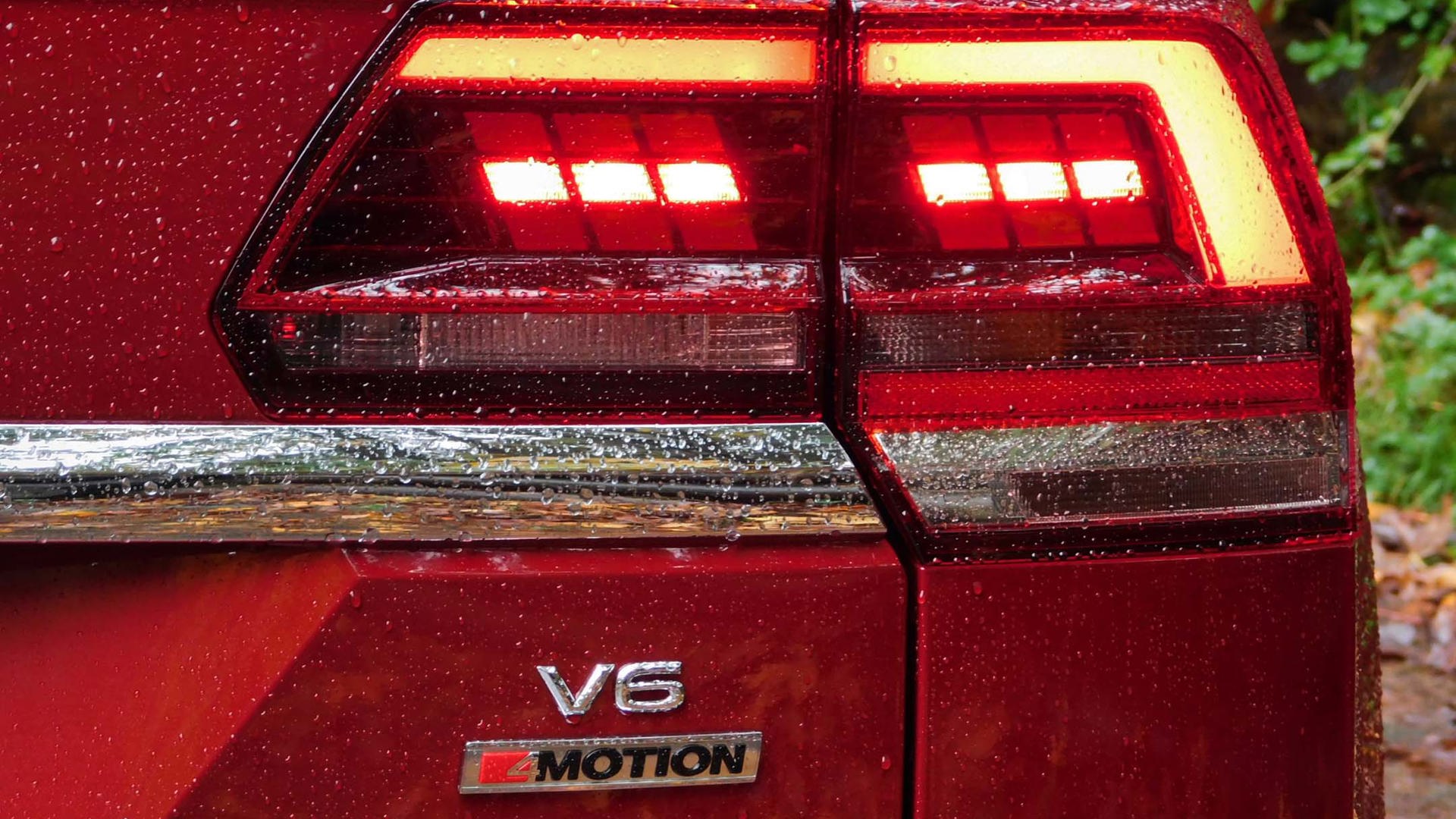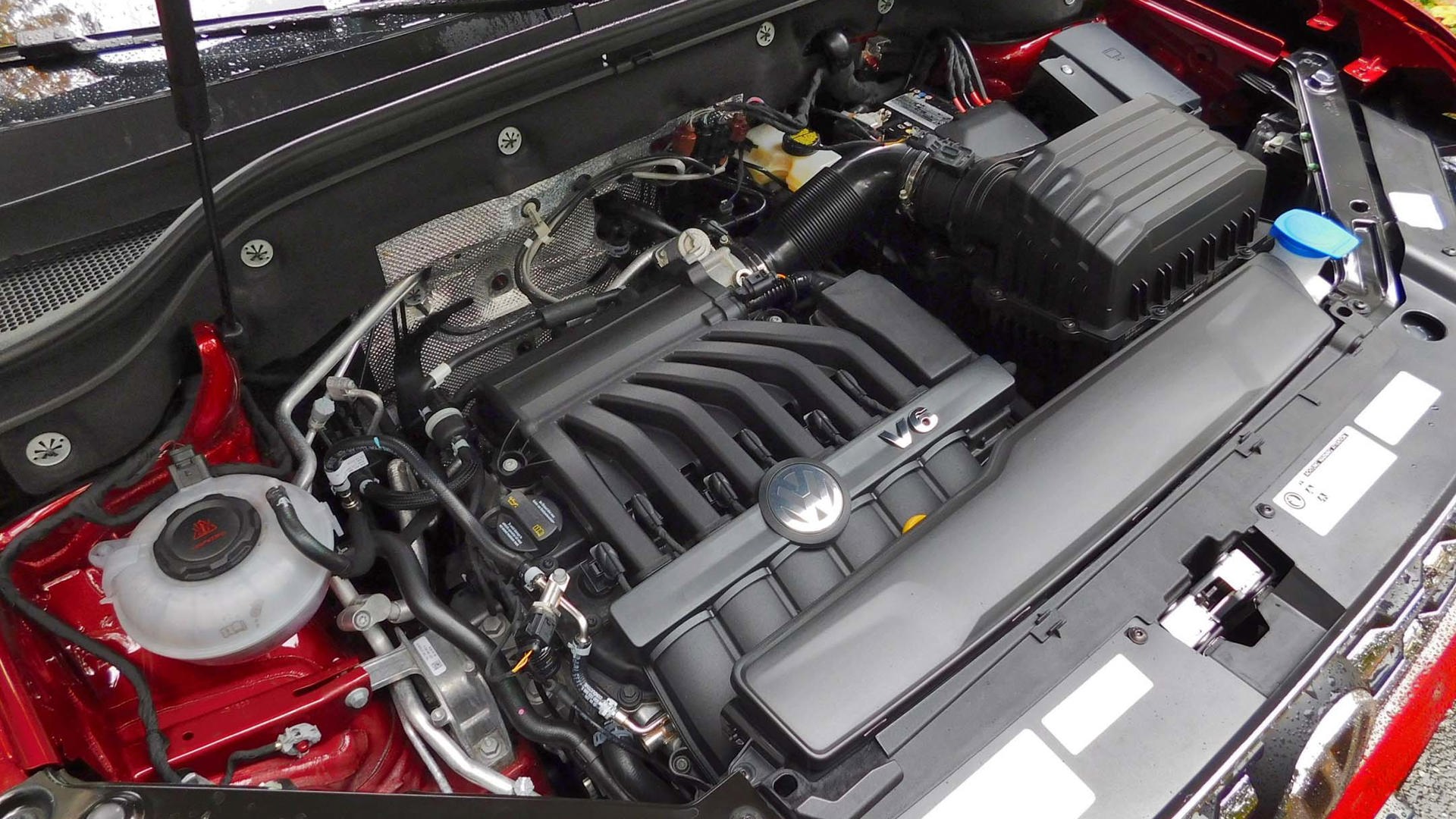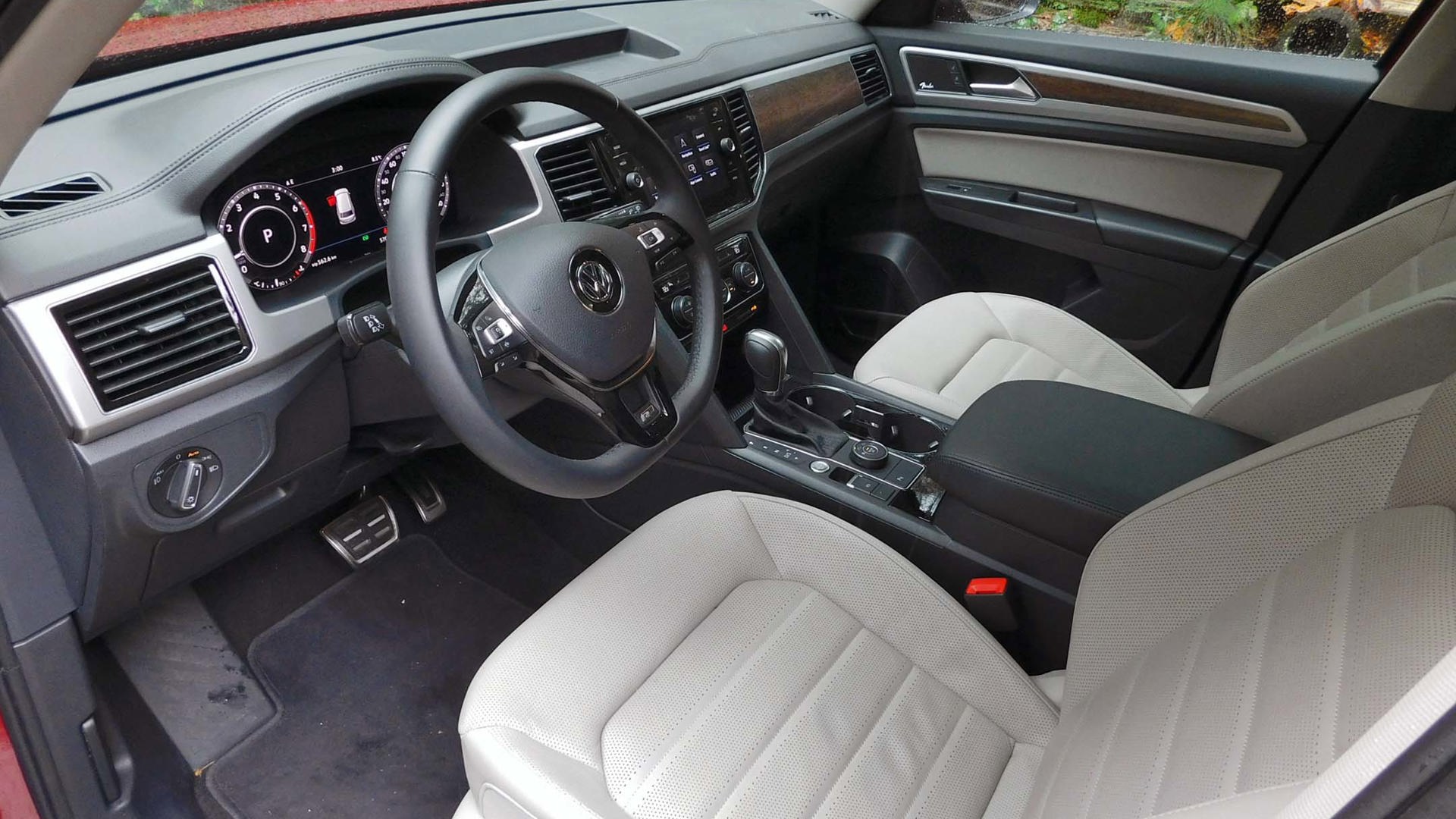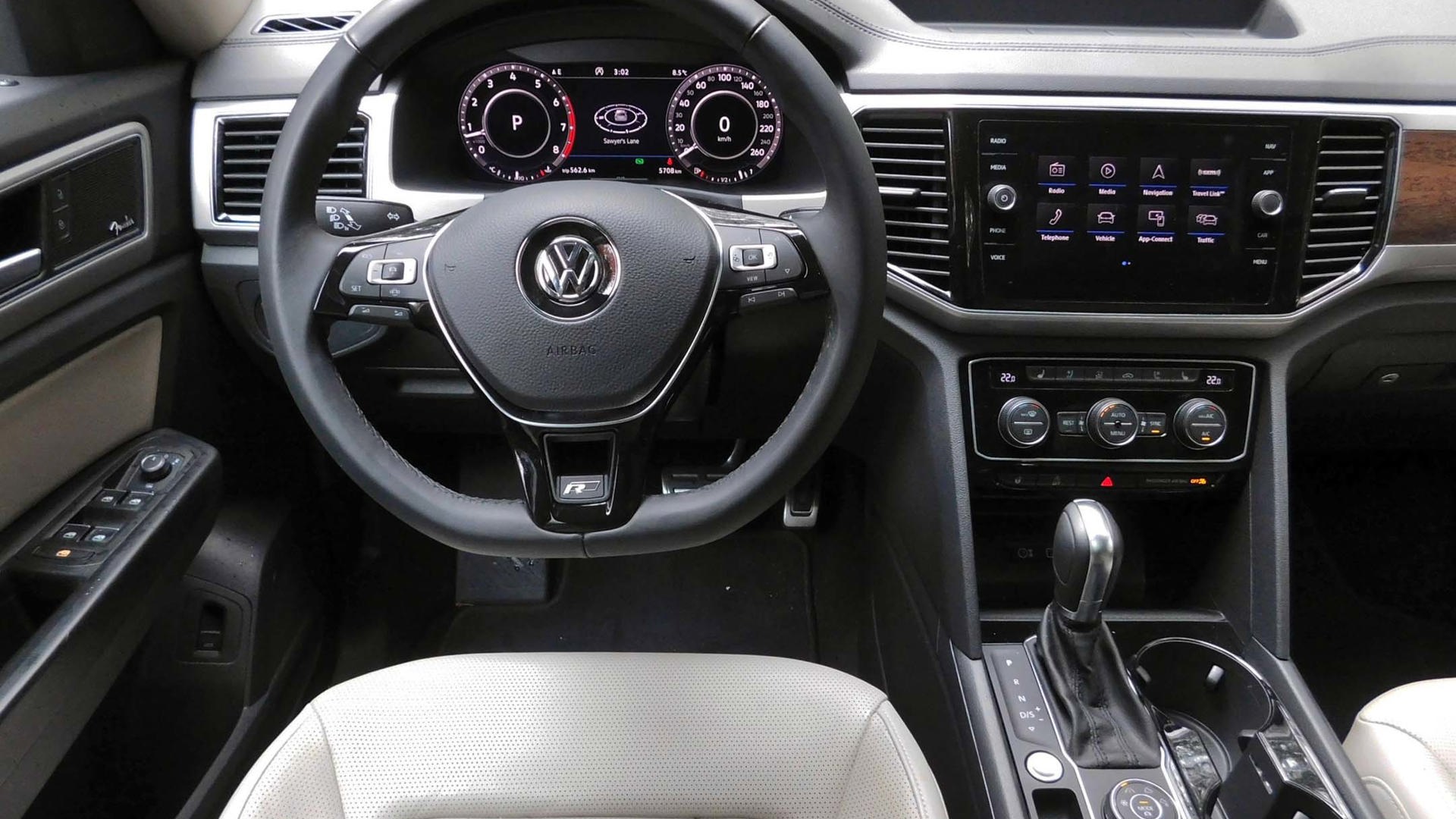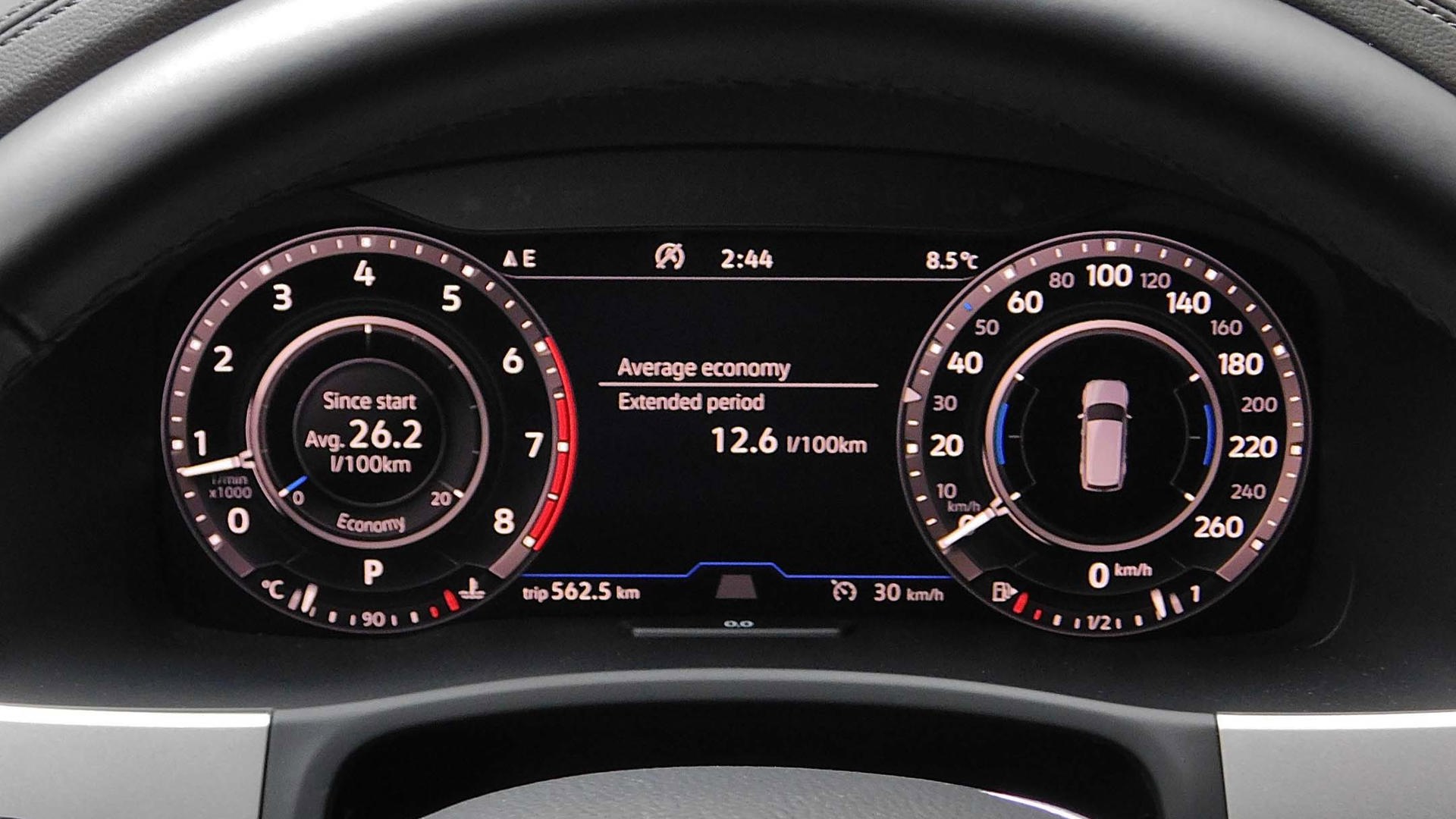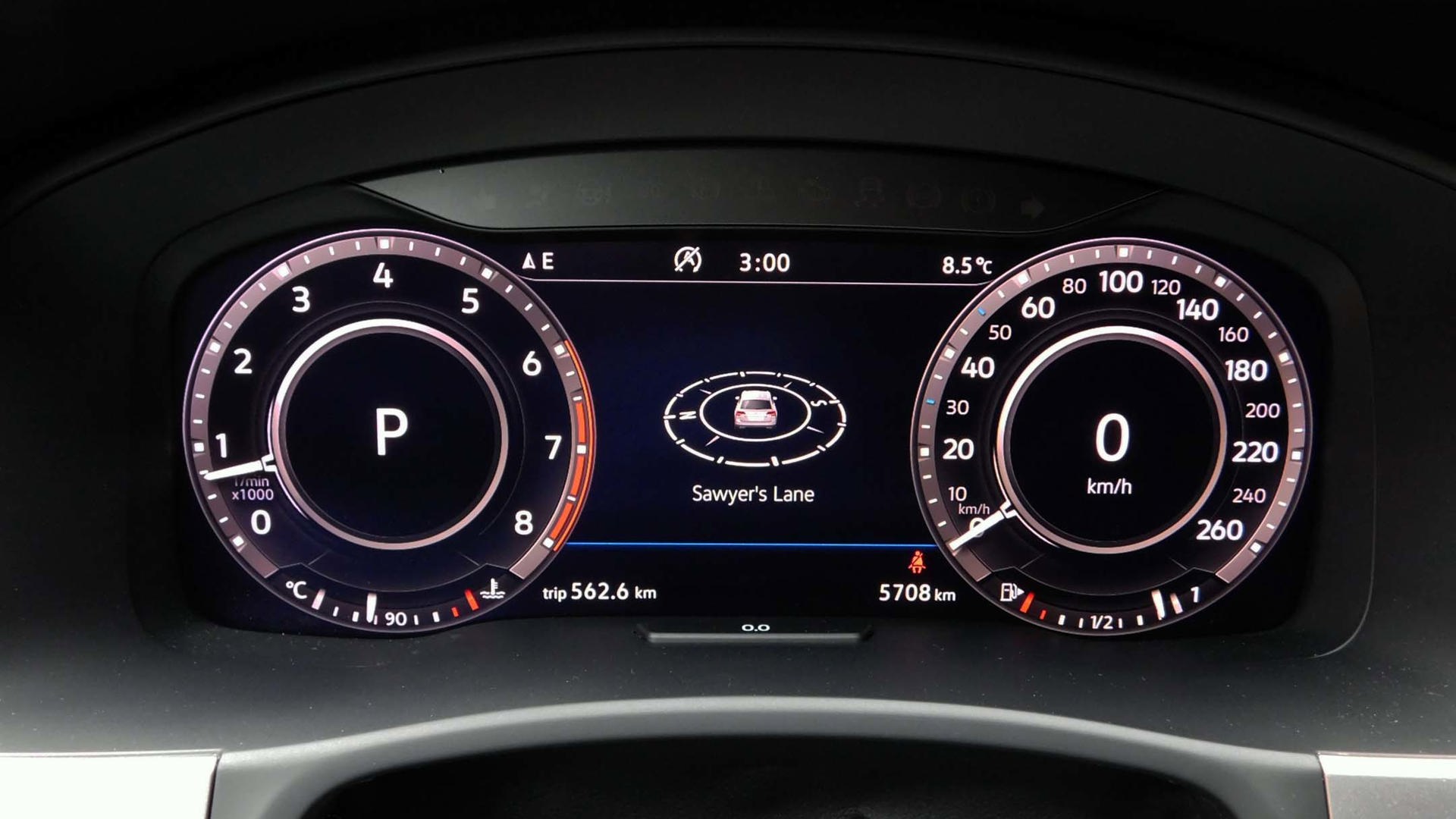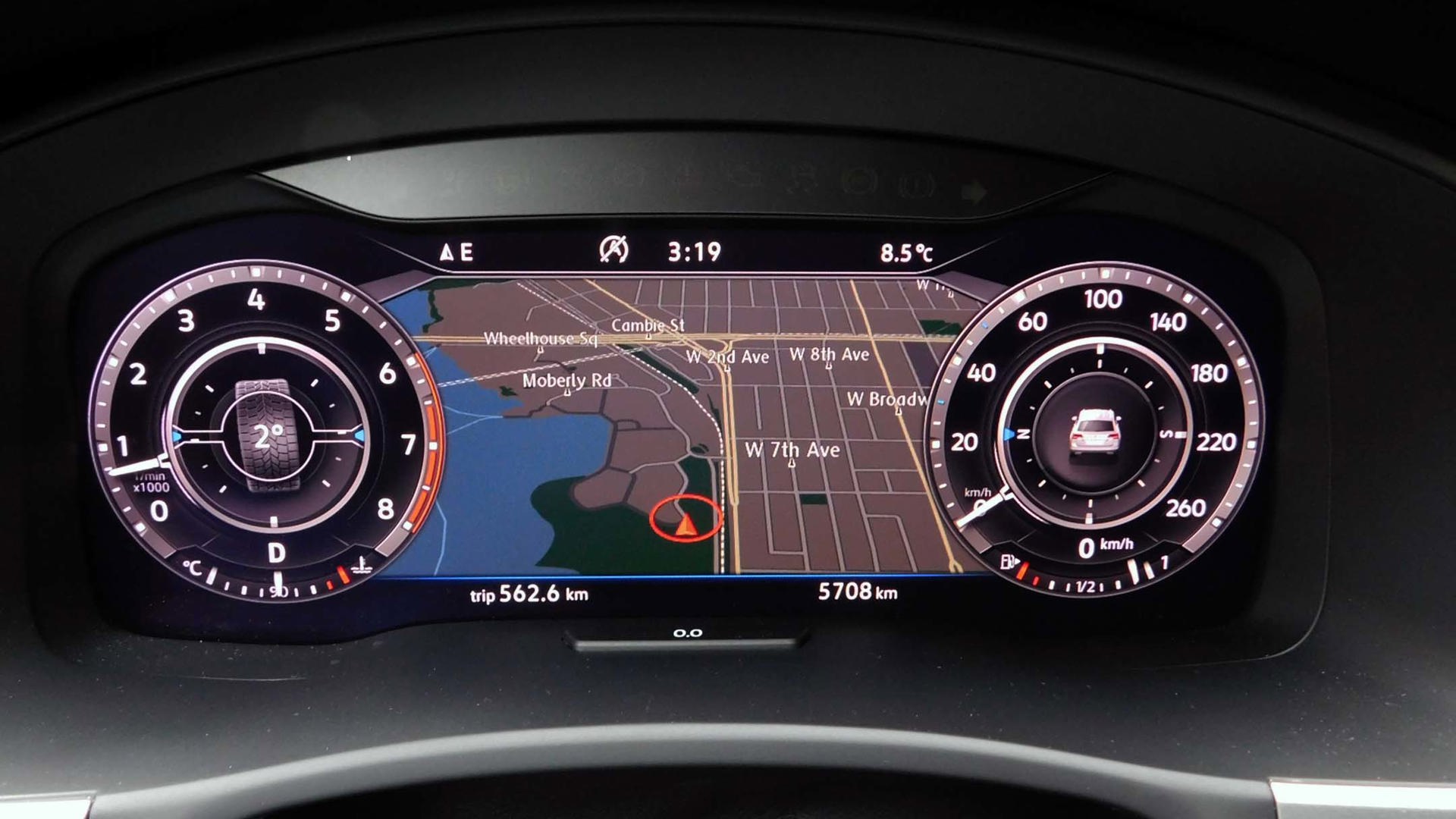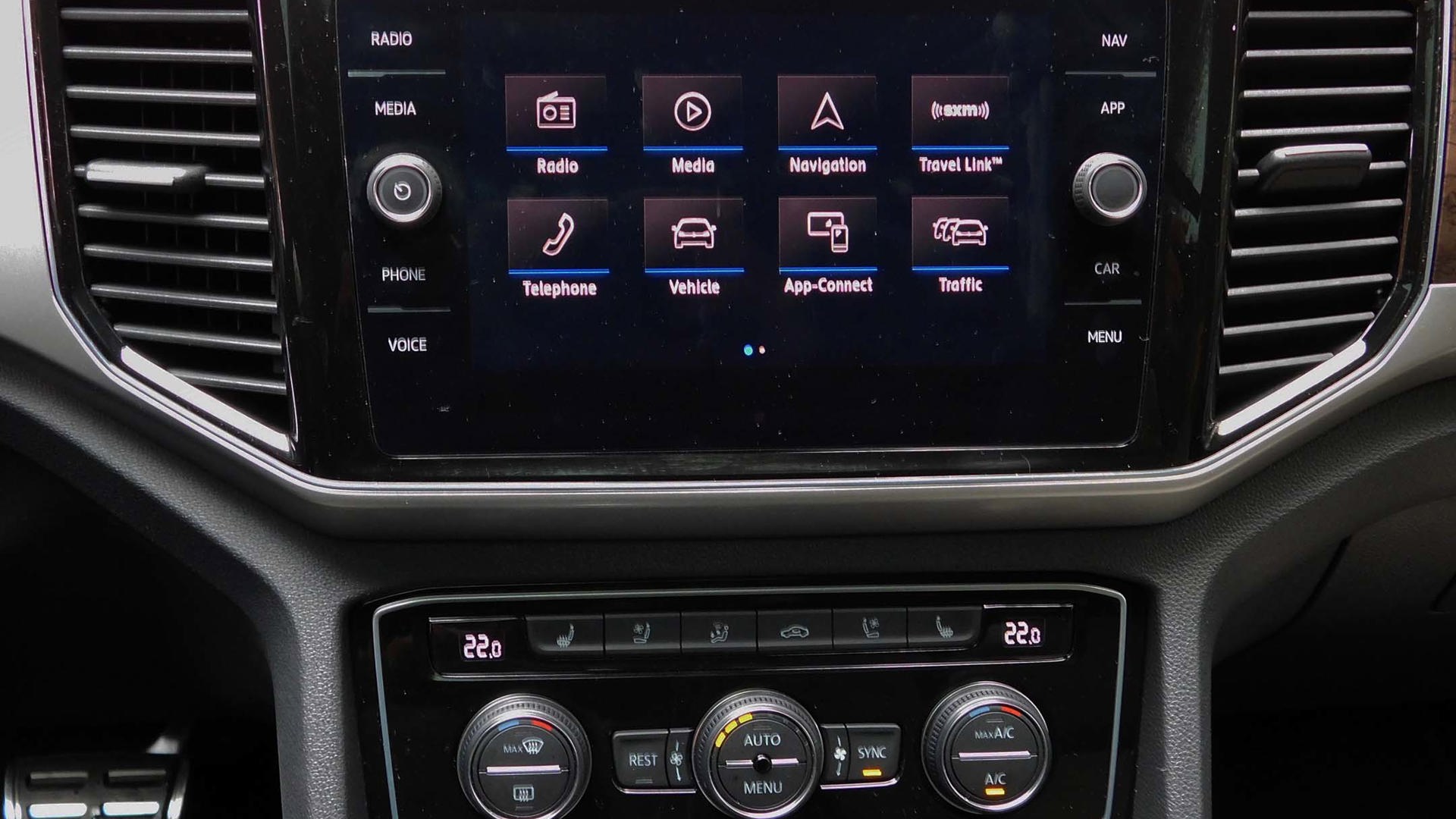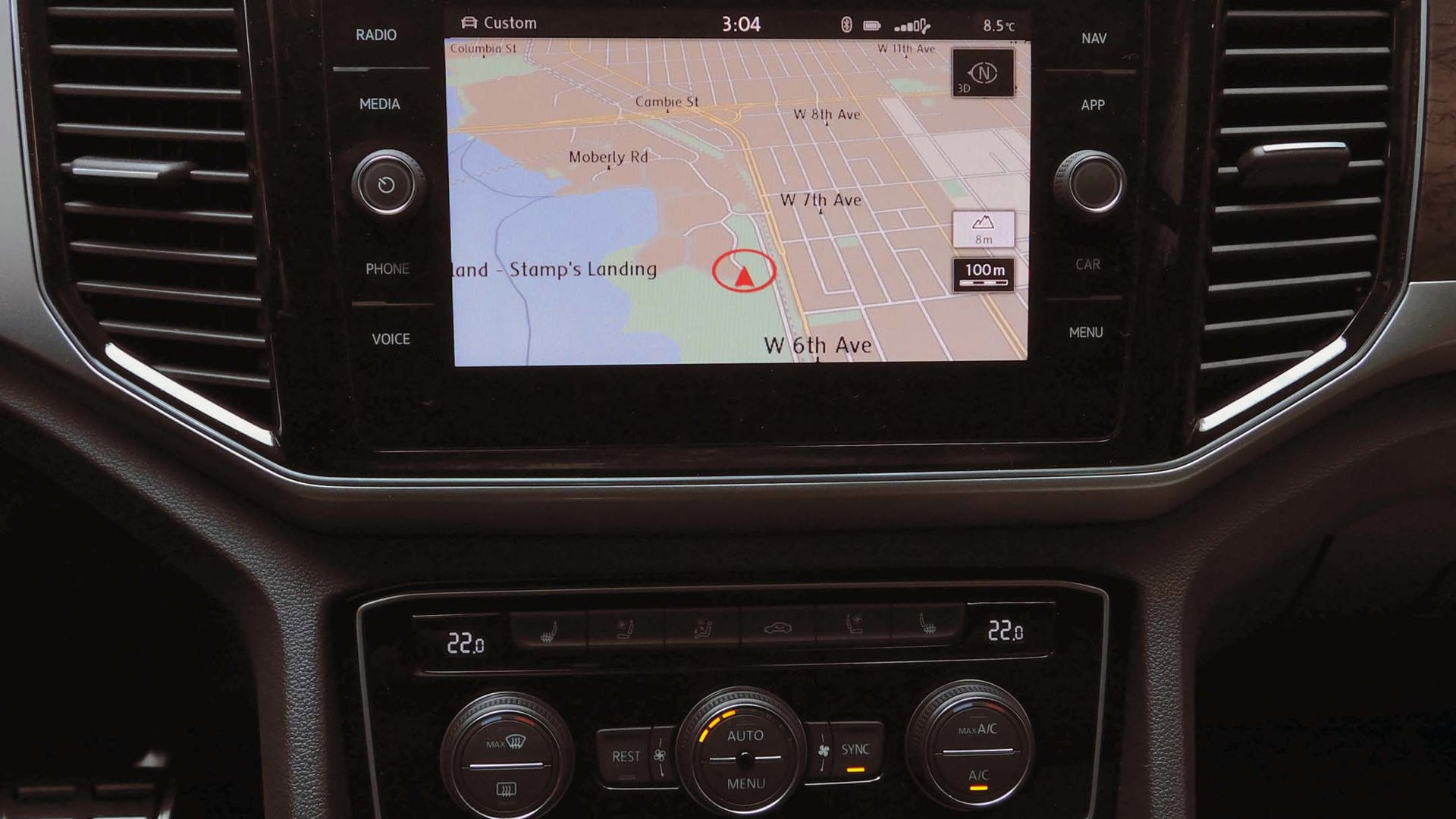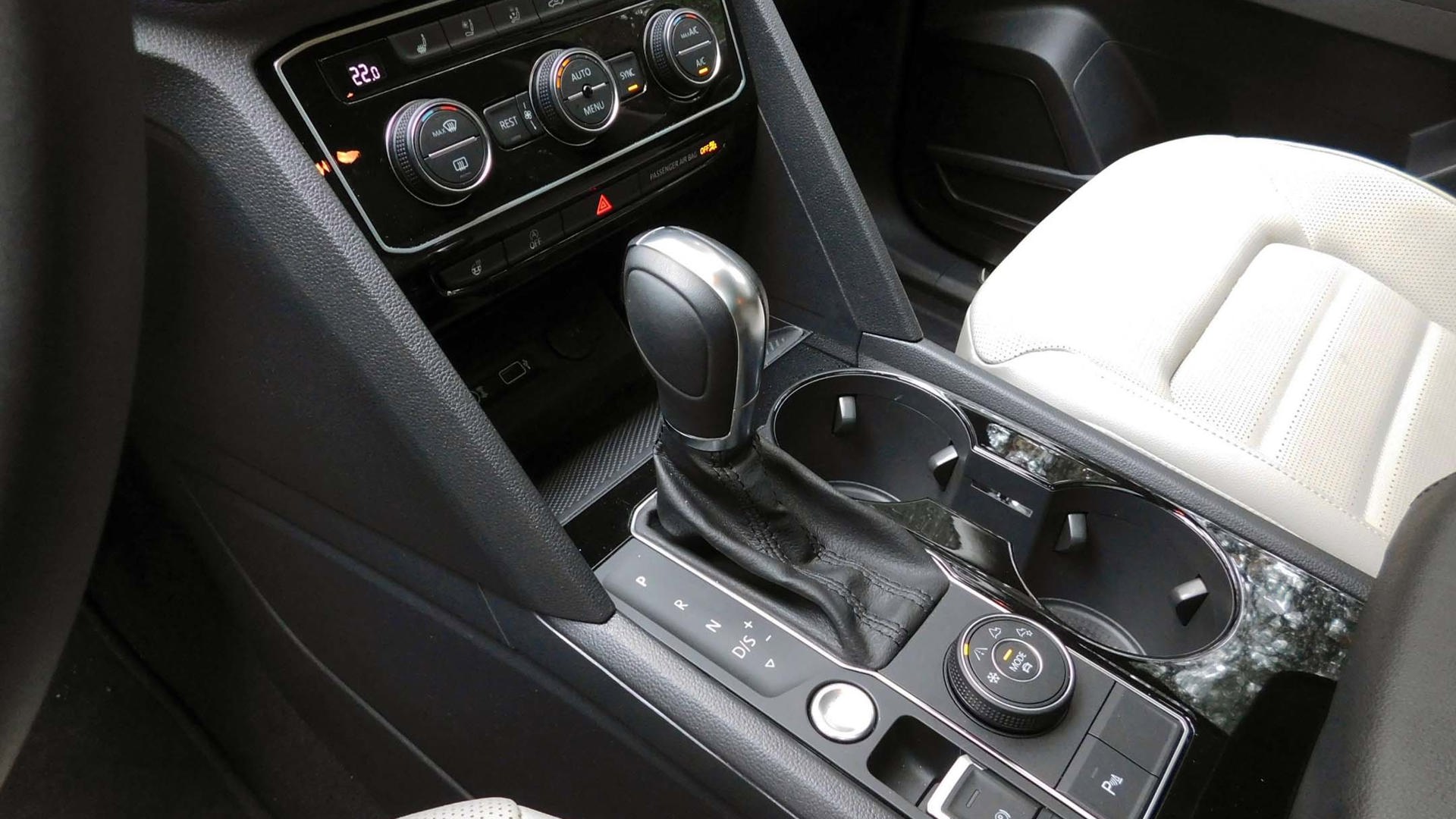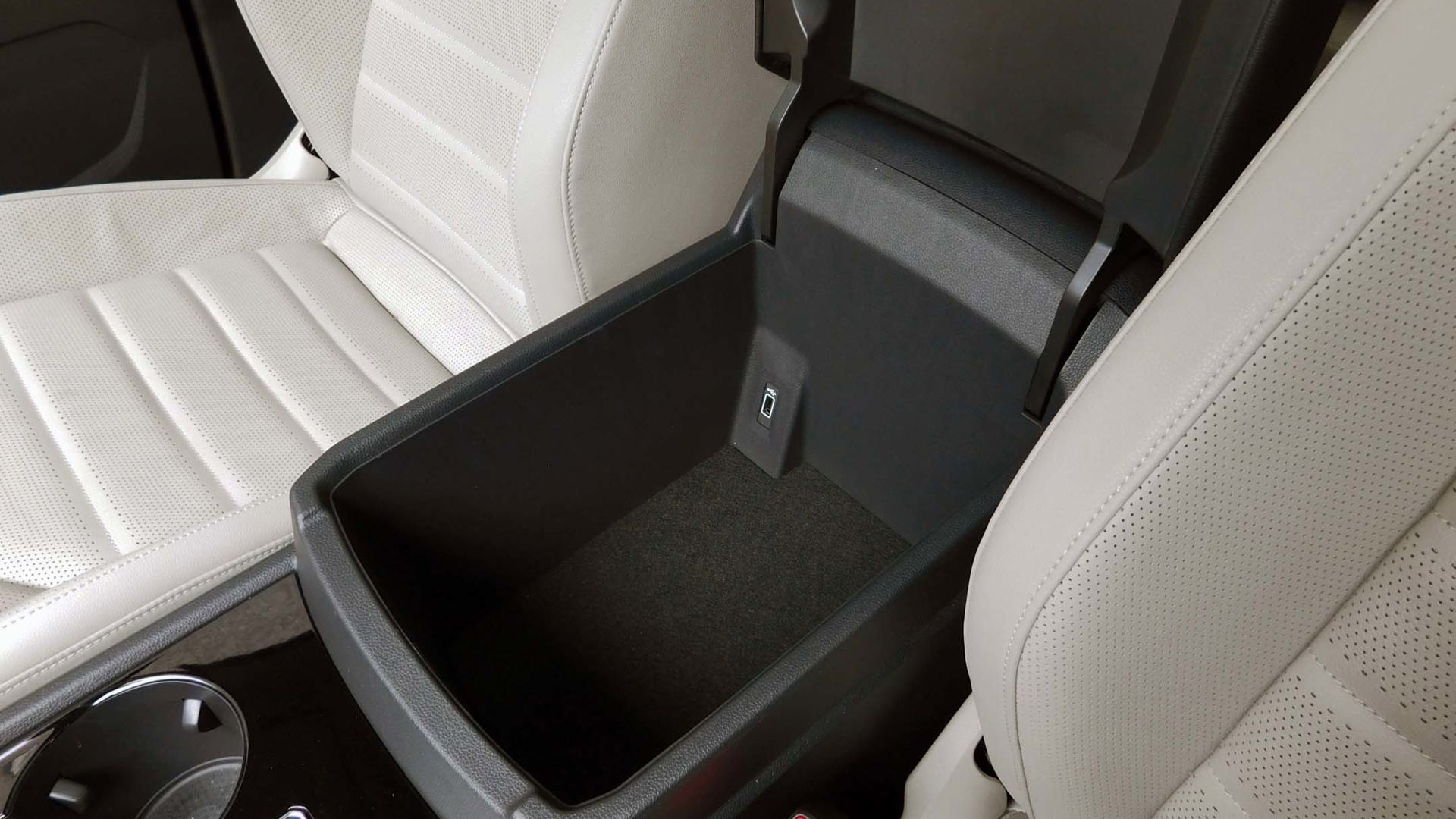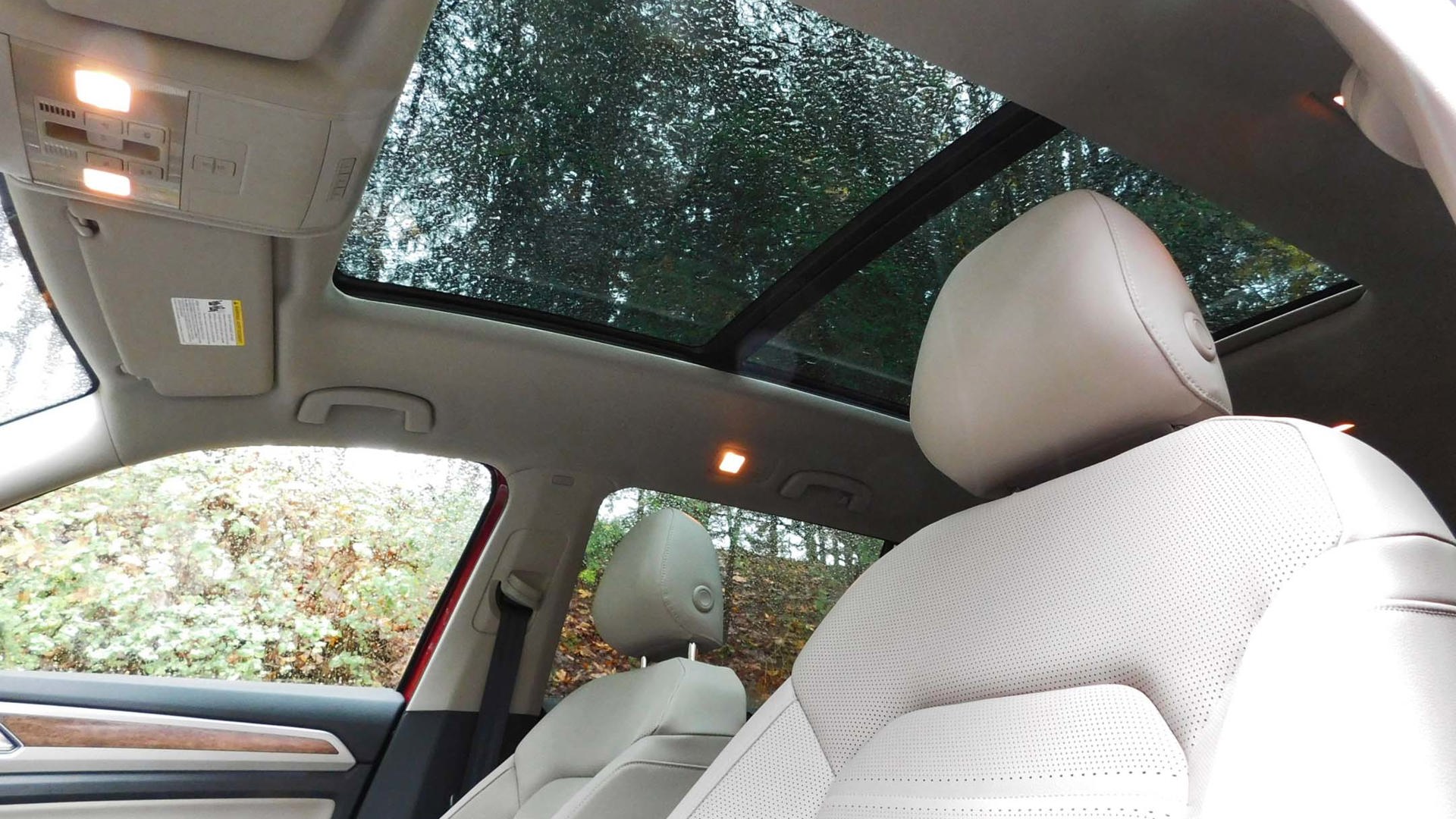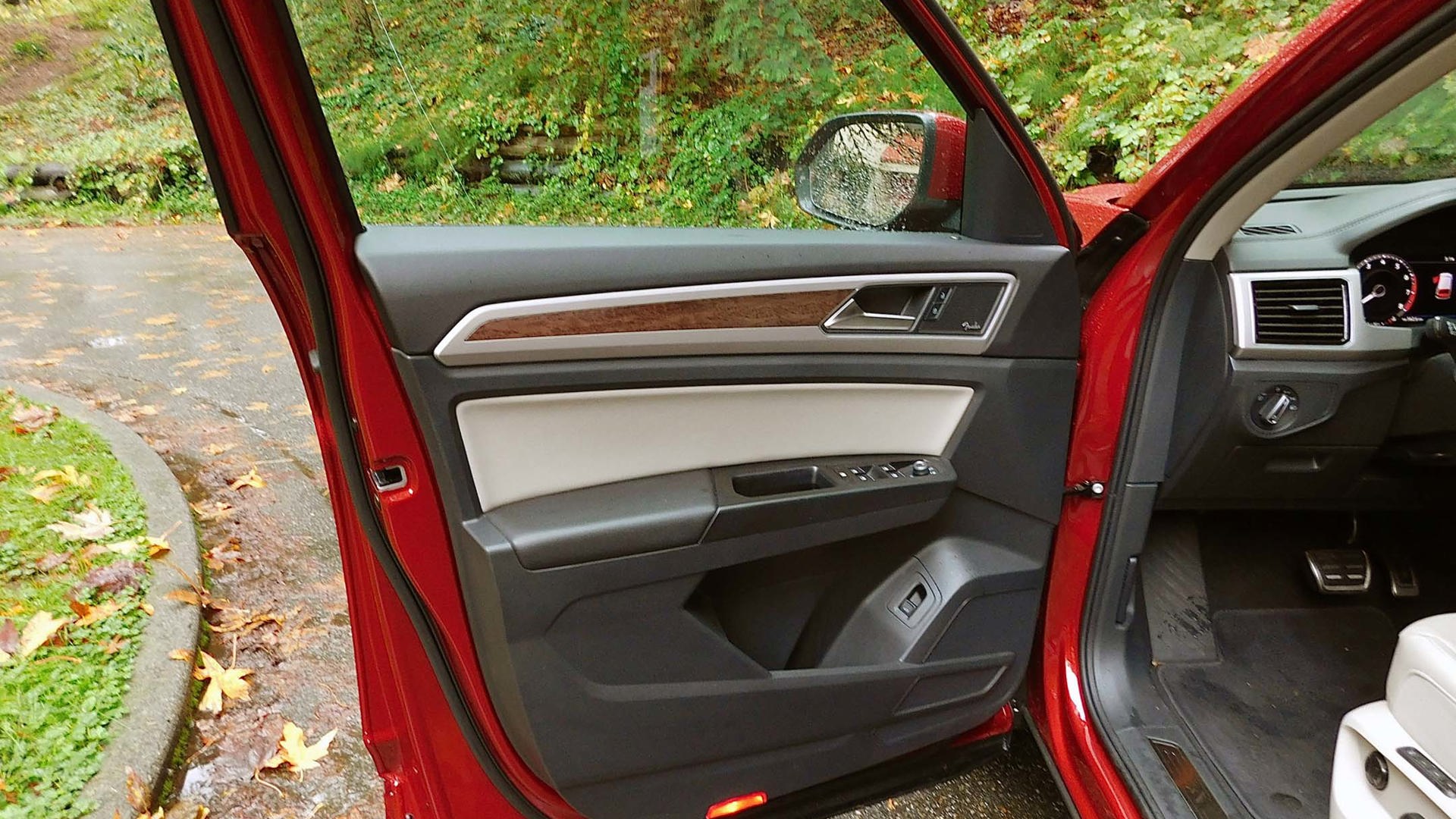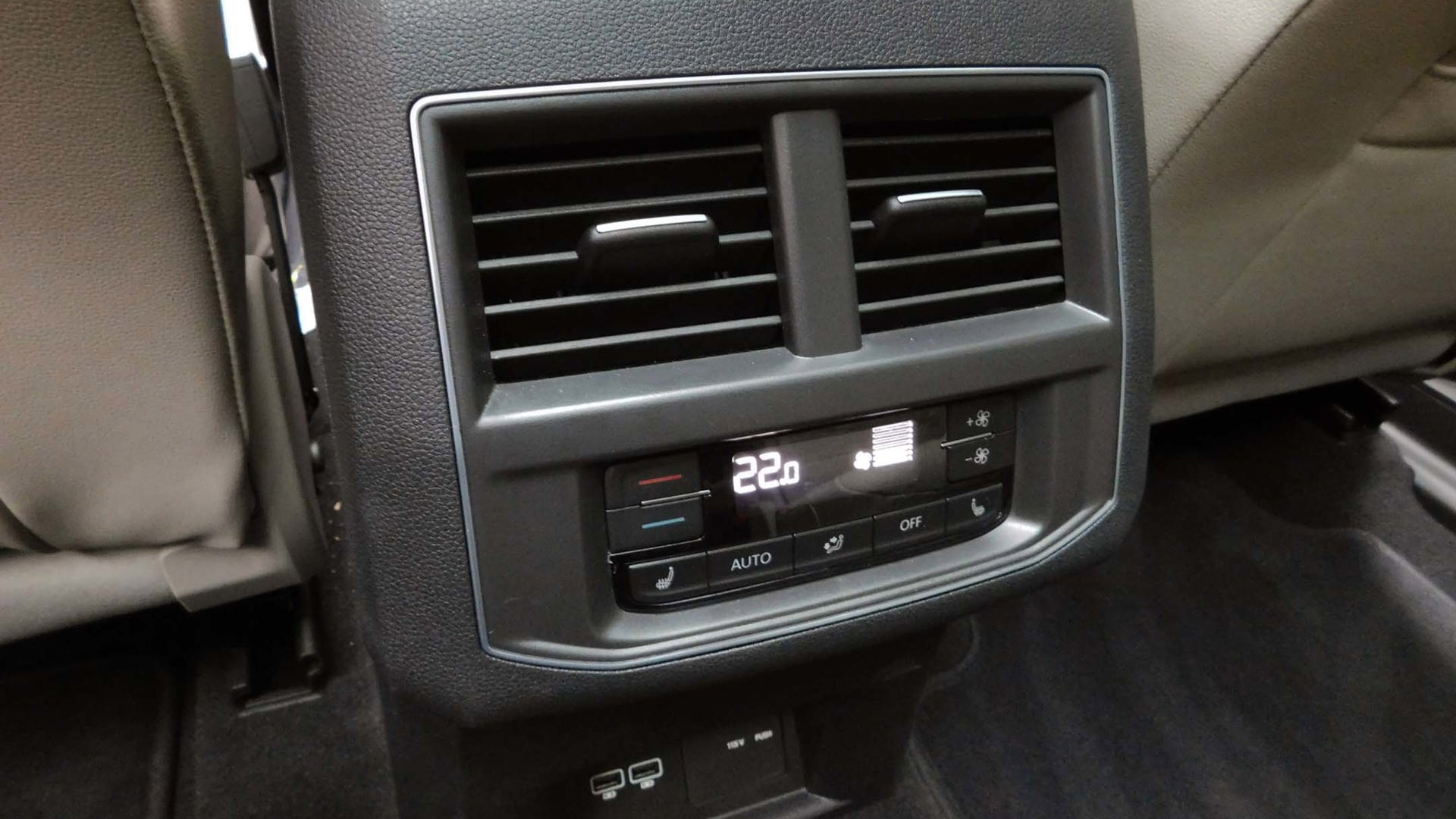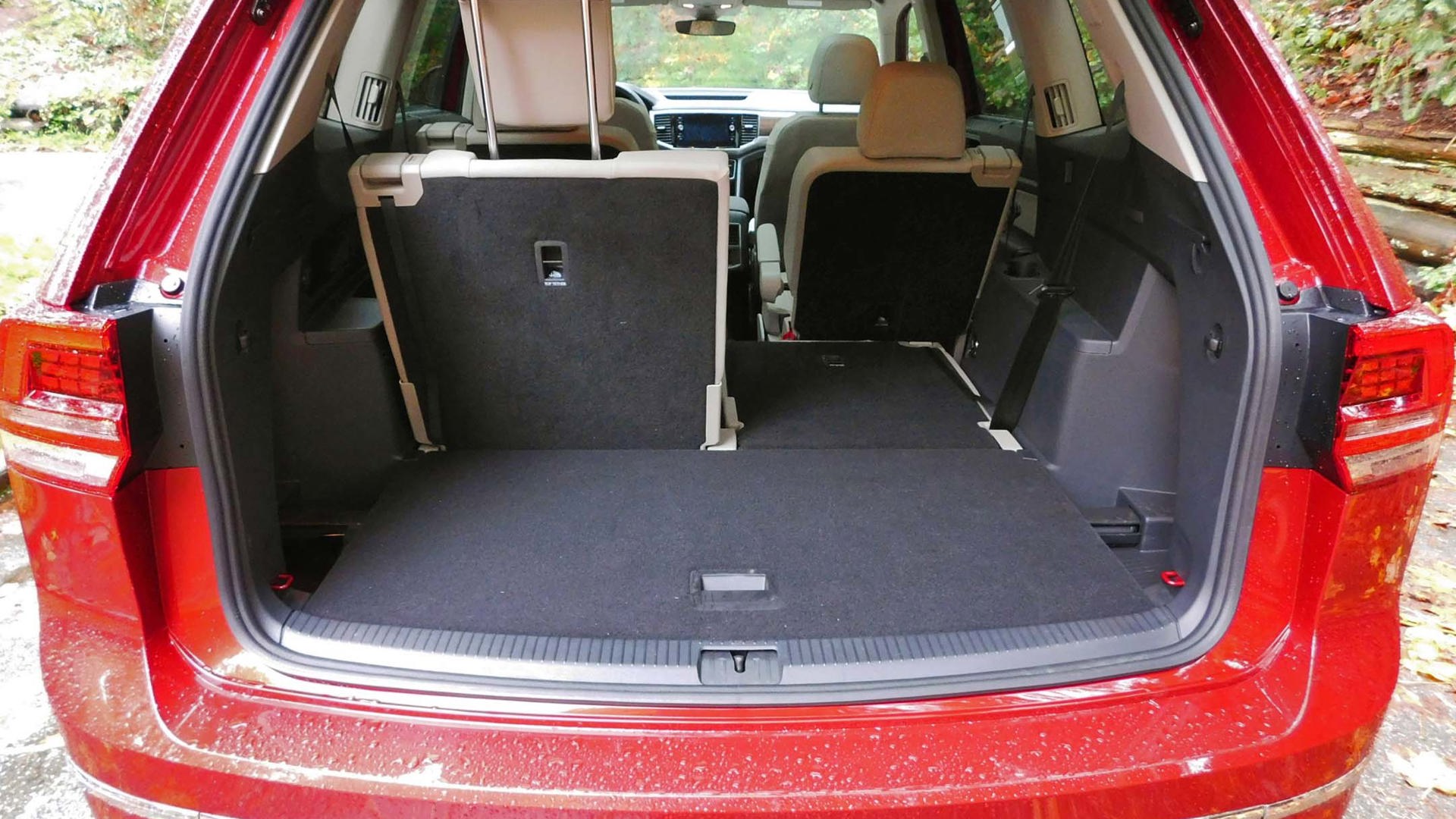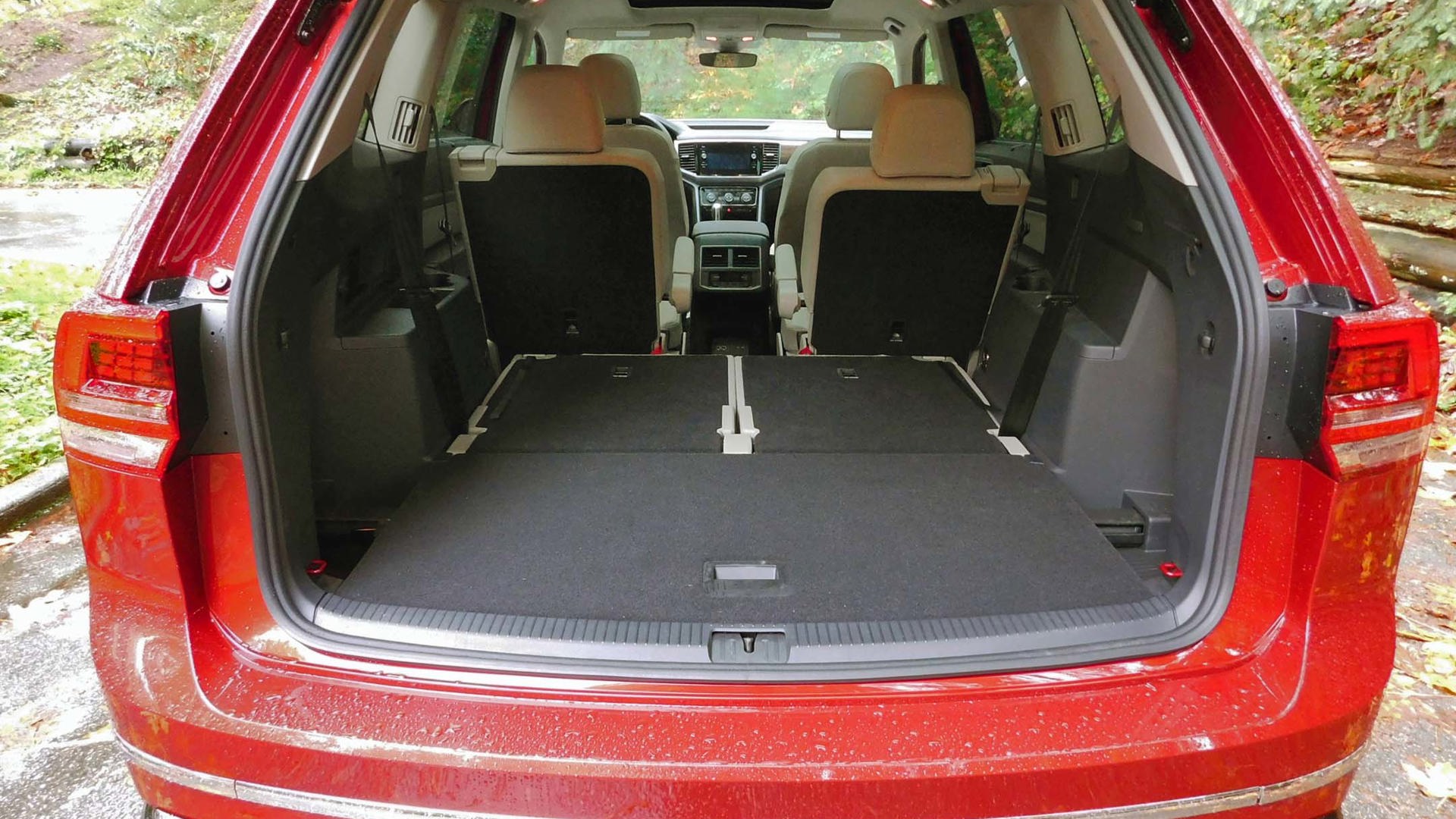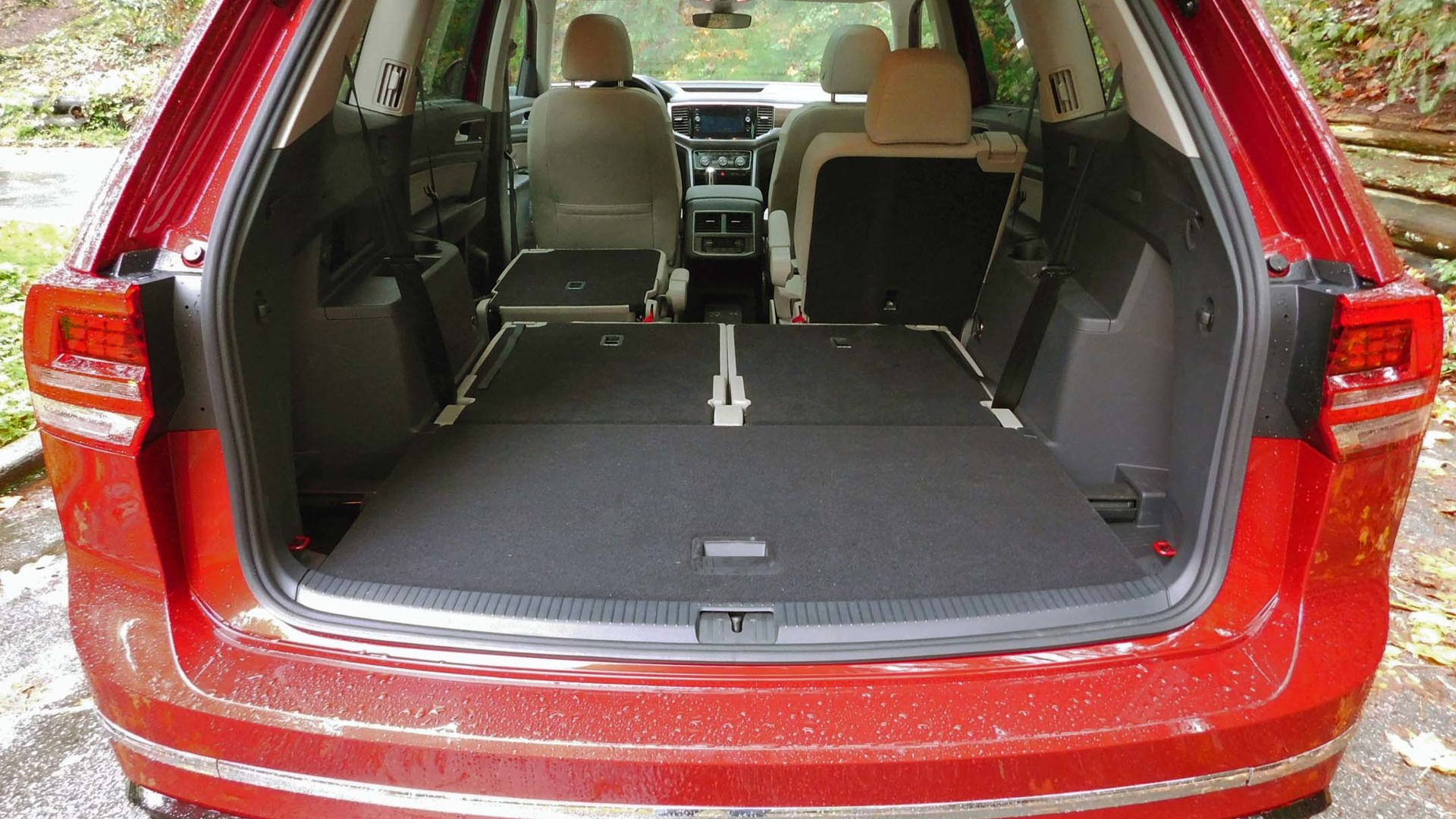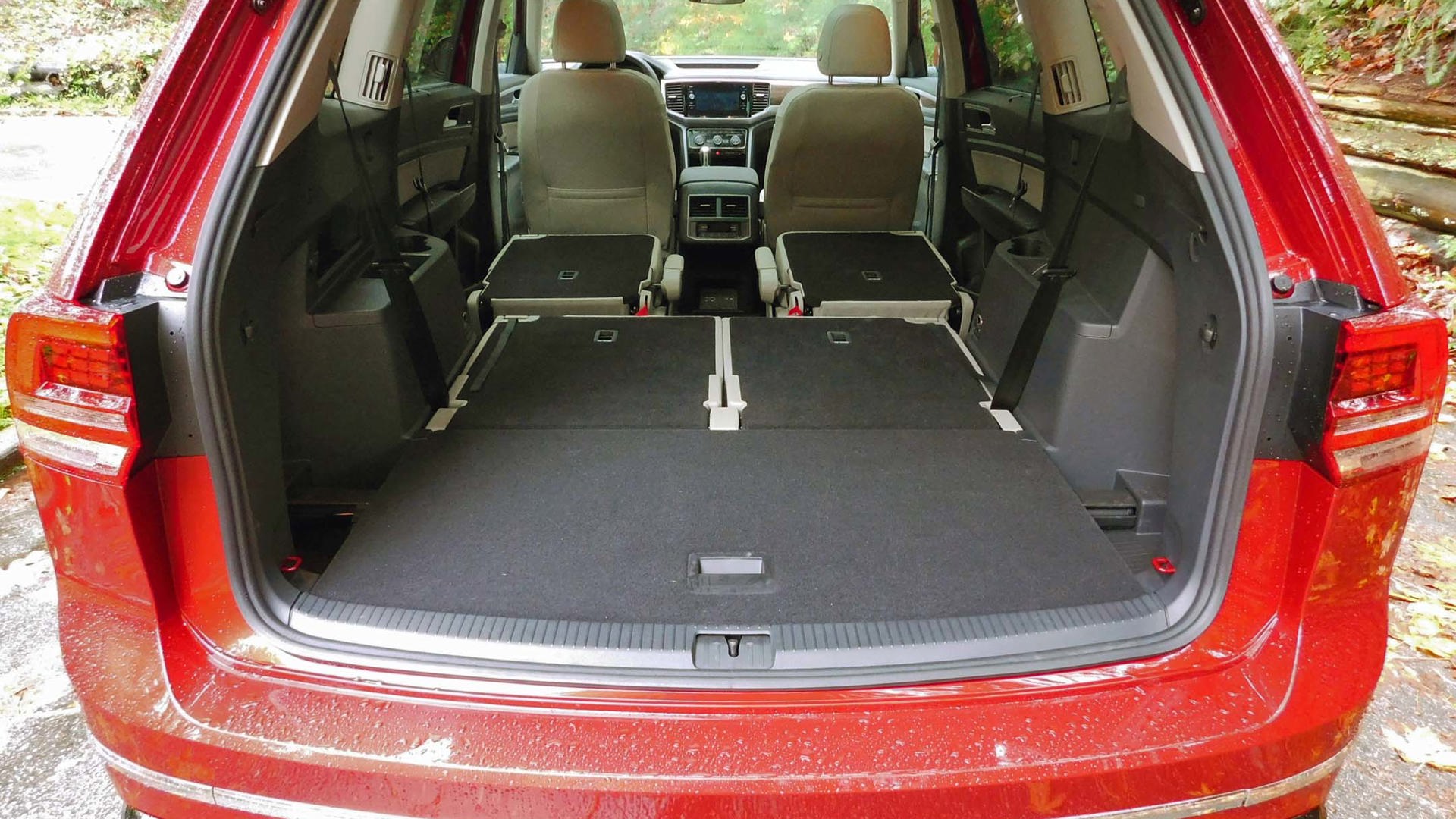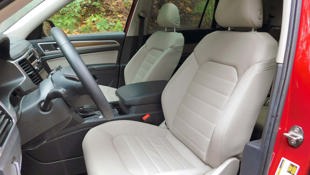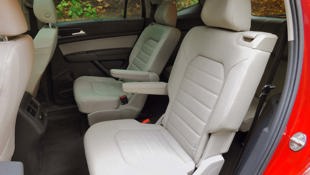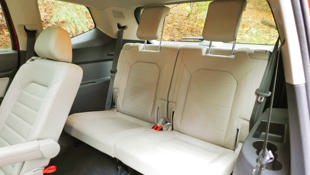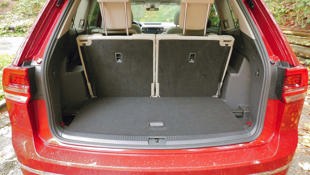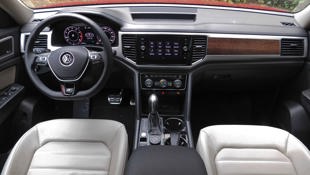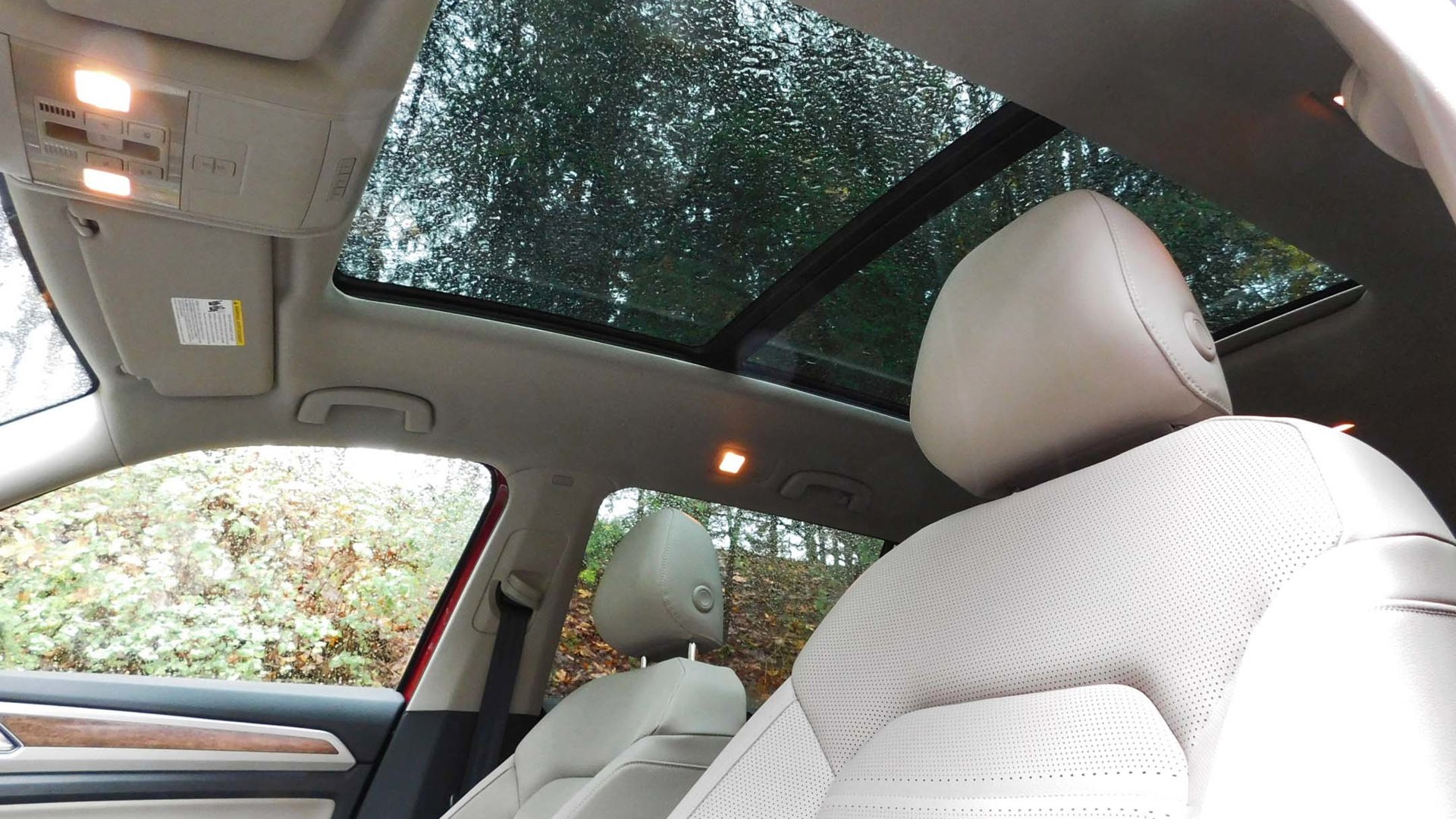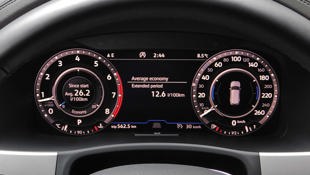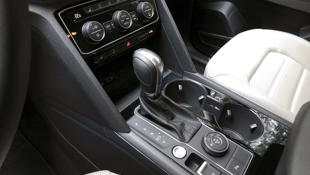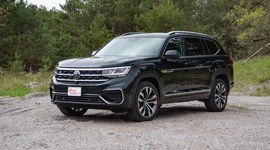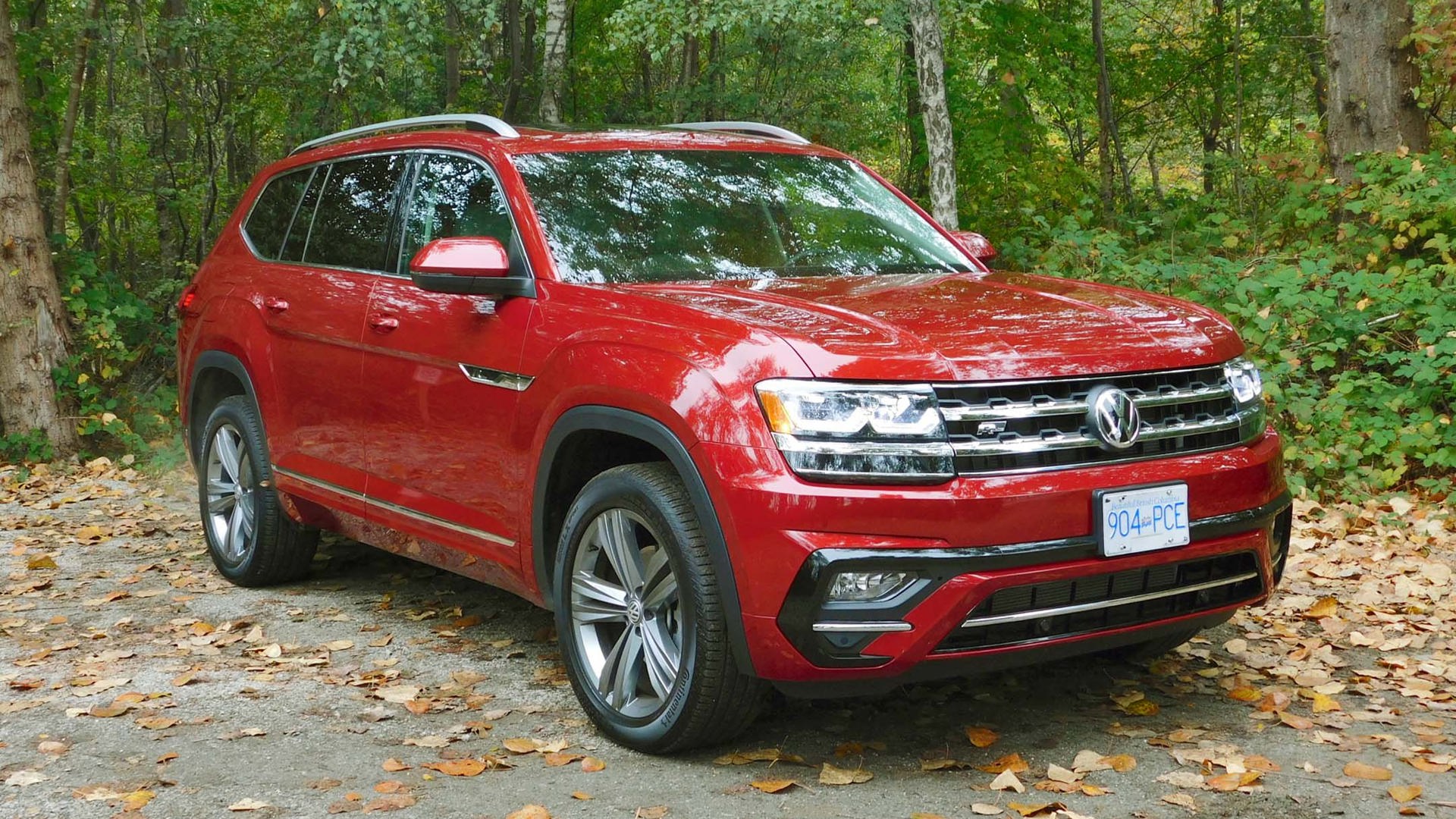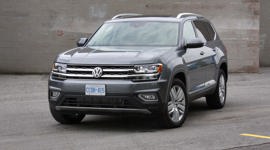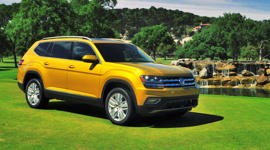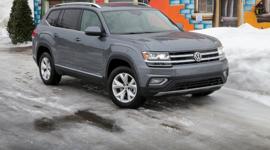Vehicle Type
Mid-size crossover SUV
History/Description
Replacing the long-lived Touareg, the Volkswagen Atlas arrived a few short years ago as the biggest vehicle the brand has ever built.
This three-row delivers plenty of upscale content, including a full digital instrument cluster, climate-controlled leather, a full array of the latest in safety and hazard-detection technology, and one of the most brilliant-looking infotainment systems in the segment. Even four years in, the Atlas’s cabin and tech offerings have aged well – though it’s missing a few family-friendly features.
Engines
Under the hood, look for a 2.0L turbocharged four-cylinder that puts out 235 hp, or a 3.6L V6 with 276 hp. All units come with all-wheel drive and an eight-speed automatic transmission.
What Owners Like
Owners tend to appreciate the Atlas’s upscale interior styling, high-tech feature content, easy-to-read infotainment system, and selection of high-end features.
What Owners Dislike
Complaints tend to centre around noise and harshness levels in certain situations. For instance, the Atlas is a comfortable highway cruiser, though alternatives like the Jeep Grand Cherokee and Subaru Ascent tend to handle rough road and backroads surfaces with a more comfortable and quieter ride. Some owners wish for less wind noise at higher speeds, as well as a slightly larger fuel tank for extended highway cruising range.
The Atlas is also missing family-friendly features found elsewhere in the segment, like a convex mirror for keeping an eye on little ones in the rear rows of seats, or built-in entertainment for the kids on road trips.
Start Here
If you’re buying a used Volkswagen Atlas that’s been regularly dealer serviced, you’re off to a good start. Many used models for sale at this writing are still covered by generous portions of the remaining warranty. Here’s a helpful overview of Volkswagen’s warranty program.
Still, a few checks and considerations before you buy can help prevent problems and make for a more enjoyable ownership experience. The most basic involves the Atlas’s electrical systems. Remember that modern vehicle batteries work harder than ever and may not last more than a few years before a replacement is required. This includes key fob batteries as well.
If the Atlas you’re considering is three to four years old, having its battery and charging system inspected can prevent headaches caused by battery failure. Likewise, preemptively replacing the key fob batteries isn’t a bad idea.
Software updates are often issued to correct or prevent certain problems with the operation of parts of a vehicle’s systems and components. For instance, a software update is often the fix for issues related to the transmission, infotainment system, and more. If the Atlas you’re considering has been dealer serviced regularly, chances are that important software updates like this have already been applied.
Volkswagen Atlas Recalls
Like most used vehicles, the Volkswagen Atlas is affected by a number of safety recalls. When a vehicle is involved in a recall, dealers perform corrective work to fix latent safety defects free of charge. Some Volkswagen Atlas models were recalled to correct issues with steering, braking, restraints, and more. Ensuring all recall work is current makes your vehicle safer for you, your family, and your fellow motorists.
Here’s a full list of Volkswagen Atlas recalls. To see if the Volkswagen Atlas you’re considering is affected by any recalls, contact Volkswagen Canada.
On the Road
When test-driving the used Atlas you’re considering, spend some time driving in a low-speed setting with a quiet cabin. A residential neighbourhood with plenty of stop signs works well. Listen closely and feel the transmission as it shifts up and down through the gears – especially as you approach a stop sign.
Unwanted vibrations and hard shifting may be signs of trouble, though some drivers chock up a little noise and vibration to the regular operation of the gearbox. If something seems off to you, have the vehicle seen by a professional before you buy.
Next, visit a rough road and quiet the Atlas’s cabin. Use the rough road surface to coax a potential clunking or popping sound from the front suspension. Listen closely for any signs of a metallic click or clunk as you drive over a rough road surface. Brake on this surface as well and listen closely to the front end. If you hear (or feel) anything unusual, the Atlas you’re considering may be suffering from front-end problems reported by a small number of owners.
Sunroof Leak
When buying any used vehicle with a sunroof, it’s important to check for signs of water leakage. A leaky sunroof can cause serious problems and expense, and leaks may be hard to detect and fix.
According to some owners, an Atlas with a leaky sunroof will tend to have damp or soggy carpeting, and a damp or water-stained ceiling liner, perhaps near overhead lighting or grab handles.
Carefully check all carpeted surfaces for signs of water leakage, and move to another unit if you notice any. Though most owners have not reported sunroof-related leaks, these are not unheard of, and can be a serious pain.
During ownership, regular cleaning of the sunroof drain tubes can prevent problematic leaks. Here’s some more information.
The AWD System
The Atlas launched with the latest version of Volkswagen’s all-wheel drive system, which features hardware that’s packaged across the rear axle to optimize the space inside, weight balance, and component durability. With an appropriate set of winter tires from a reputable brand, the Atlas should prove an exceptionally confident wintertime performer.
The Verdict
Though the Atlas appeals strongly for its winter-ready dynamics and high-tech feature content, its owners community has documented several notable issues that test-driving shoppers should be aware of.
Reliability lists and reports come and go, but having the used Atlas you’re considering inspected by a technician before you buy is the best predictor of health and reliability for the specific model you’re considering.
Safety Ratings
IIHS: Top Safety Pick (2017)
NHTSA: 5/5 Stars
